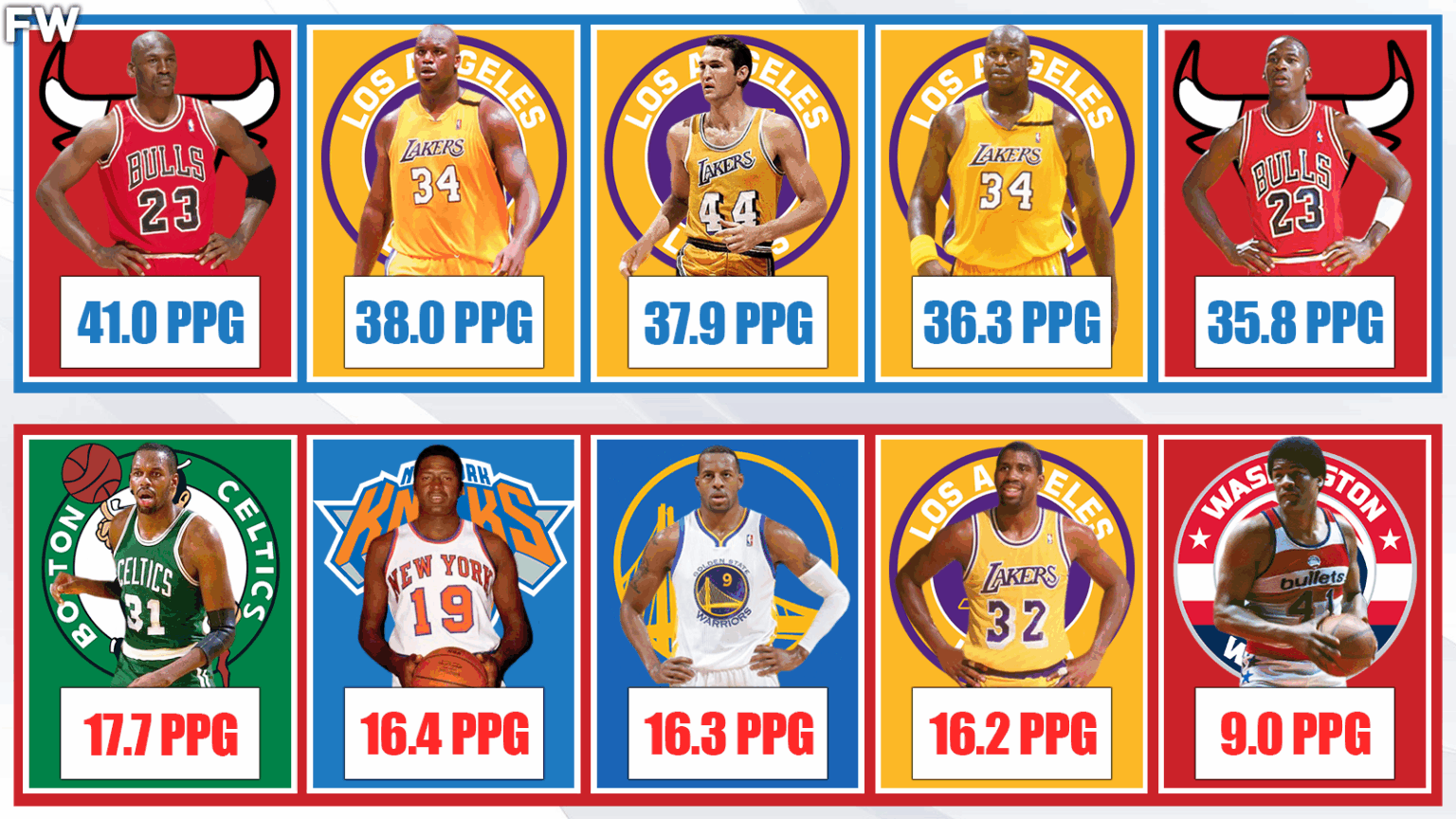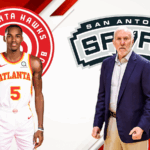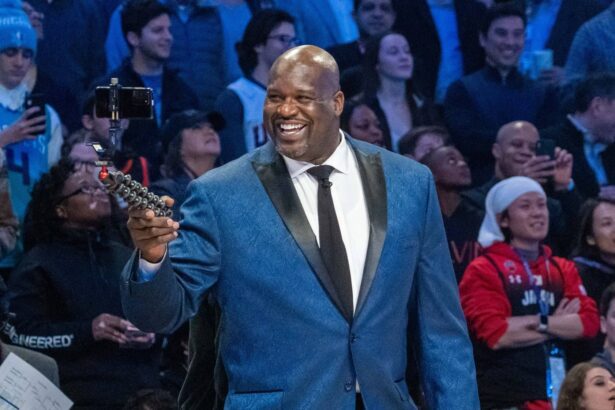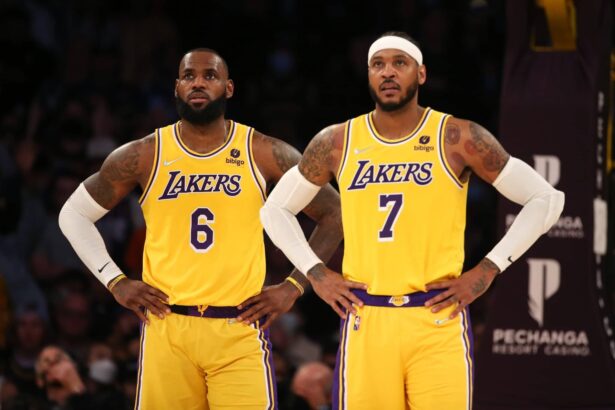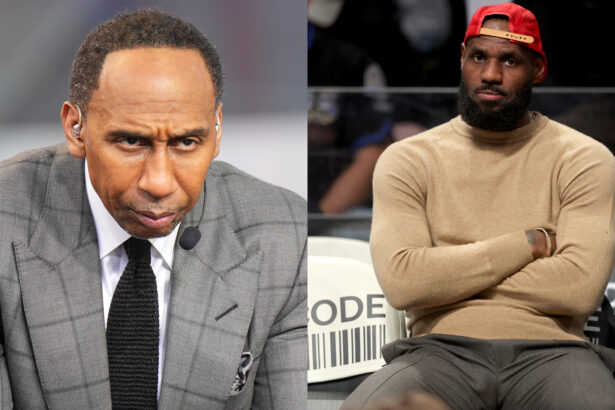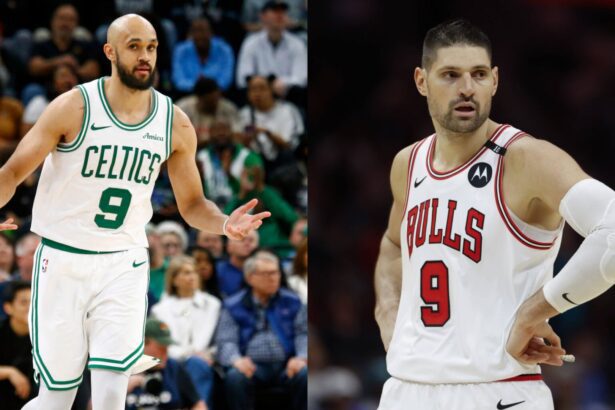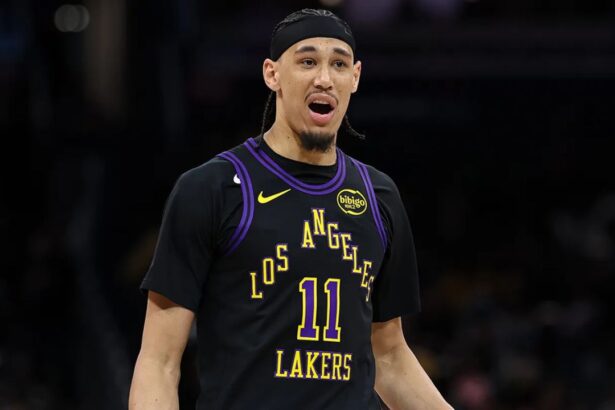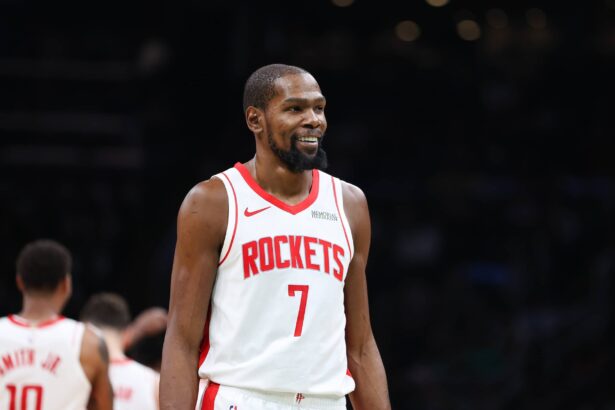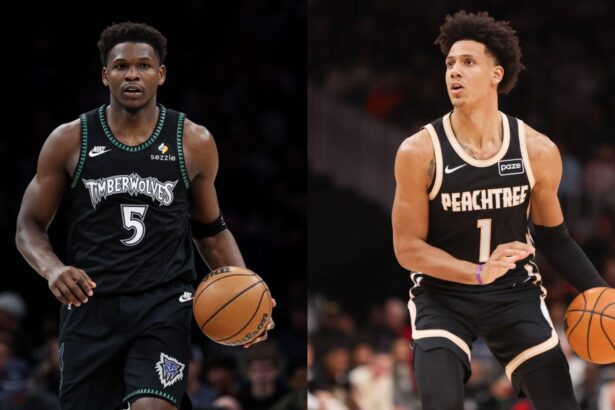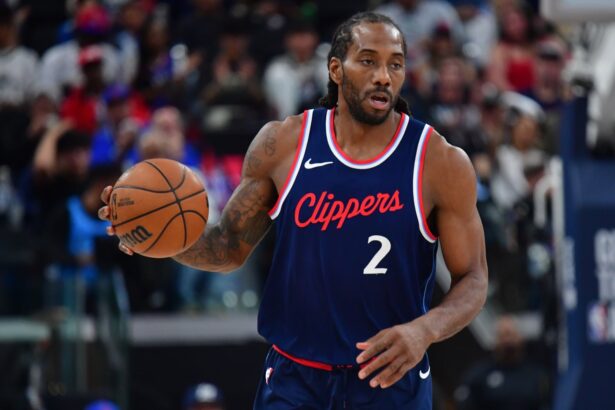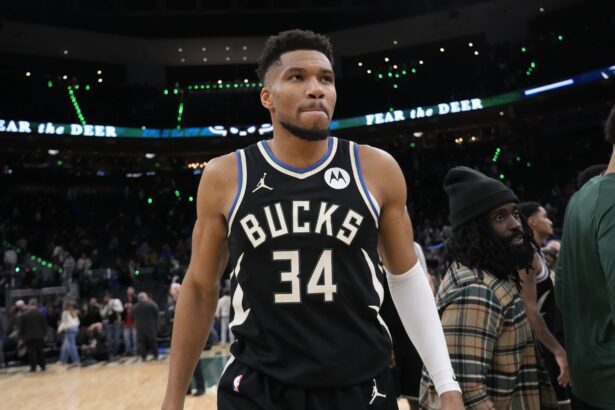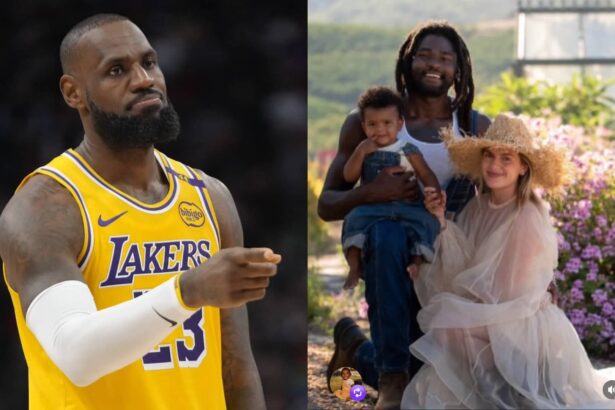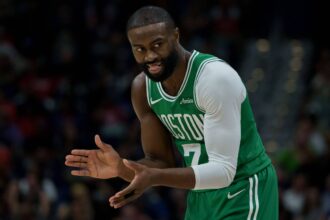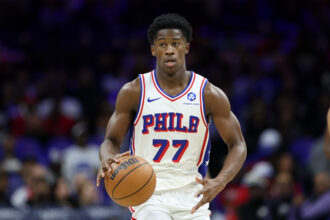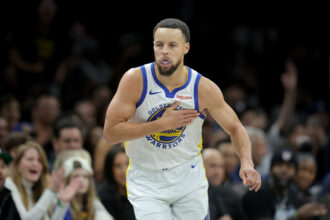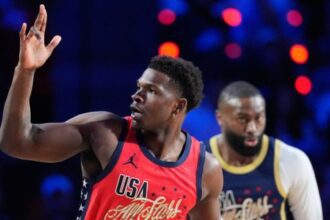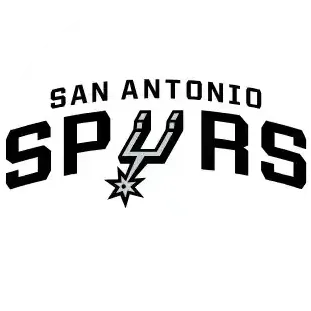The Finals MVP is one of the NBA’s most prestigious awards that they give out every year. It can be argued that the Finals MVP means more to an individual than any regular season MVP award that they can win. Winning the Finals MVP means that on the biggest stage in the sport of basketball, the NBA Finals, that player was the best player on the court either overall or at least on the winning team. Winning Finals MVP means a player was the main reason a city and a franchise were delivered an NBA championship which is an honor every player strives to earn at least once in their careers.
- The Finals MVPs With The Fewest PPG
- 10. Chauncey Billups (2004 NBA Finals) – 21.0 PPG
- 9. Tim Duncan (2005 NBA Finals) – 20.6 PPG
- 8. Wilt Chamberlain (1972 NBA Finals) – 19.4 PPG
- 7. Bill Walton (1977 NBA Finals) – 18.5 PPG
- 6. Kawhi Leonard (2014 NBA Finals) – 17.8 PPG
- 5. Cedric Maxwell (1981 NBA Finals) – 17.7 PPG
- 4. Willis Reed (1973 NBA Finals) – 16.4 PPG
- 3. Andre Iguodala (2015 NBA Finals) – 16.3 PPG
- 2. Magic Johnson (1982 NBA Finals) – 16.2 PPG
- 1. Wes Unseld (1978 NBA Finals) – 9.0 PPG
- The Finals MVPs With The Most PPG
- 10. Shaquille O’Neal (2001 NBA Finals) – 33.0 PPG
- 9. Michael Jordan (1998 NBA Finals) – 33.5 PPG
- 8. Dwyane Wade (2006 NBA Finals) – 34.7 PPG
- T7. Giannis Antetokounmpo (2021 NBA Finals) – 35.2 PPG
- T7. Kevin Durant (2017 NBA Finals) – 35.2 PPG
- 5. Michael Jordan (1992 NBA Finals) – 35.8 PPG
- 4. Shaquille O’Neal (2002 NBA Finals) – 36.3 PPG
- 3. Jerry West (1969 NBA Finals) – 37.9 PPG
- 2. Shaquille O’Neal (2000 NBA Finals) – 38.0 PPG
- 1. Michael Jordan (1993 NBA Finals) – 41.0 PPG
- Next
- 10 Oldest NBA Players To Win The Finals MVP Award
- The GOAT Of Every NBA Franchise
- The Greatest All-Time NBA Teams: Michael Jordan And LeBron James Lead The First Team
- The Most Scoring Titles By Position In NBA History: Michael Jordan Is The Ultimate Leader With 10
- NBA Playoffs Single-Game Records: Michael Jordan Still Holds The 63-Point Record, Wilt Chamberlain’s 41 Rebounds Won’t Ever Be Repeated
Being named a Finals MVP means one of a few things occurred. It means that a player was so good offensively that nobody on the opposing team could stop them, leading to an NBA championship. It can also mean that a player was an elite defender and shut down the opposing team’s best player leading to an NBA championship as well. Scorers, rebounders, defenders, and playmakers have all recorded amazing NBA Finals performances that resulted in a title and Finals MVP honors. Just as we have done with MVPs, today we go over the Finals MVPs who were the best and worst scorers on the big stage in their Finals MVP performances.
These are the Finals MVP winners with the most and fewest PPG in history.
The Finals MVPs With The Fewest PPG
10. Chauncey Billups (2004 NBA Finals) – 21.0 PPG
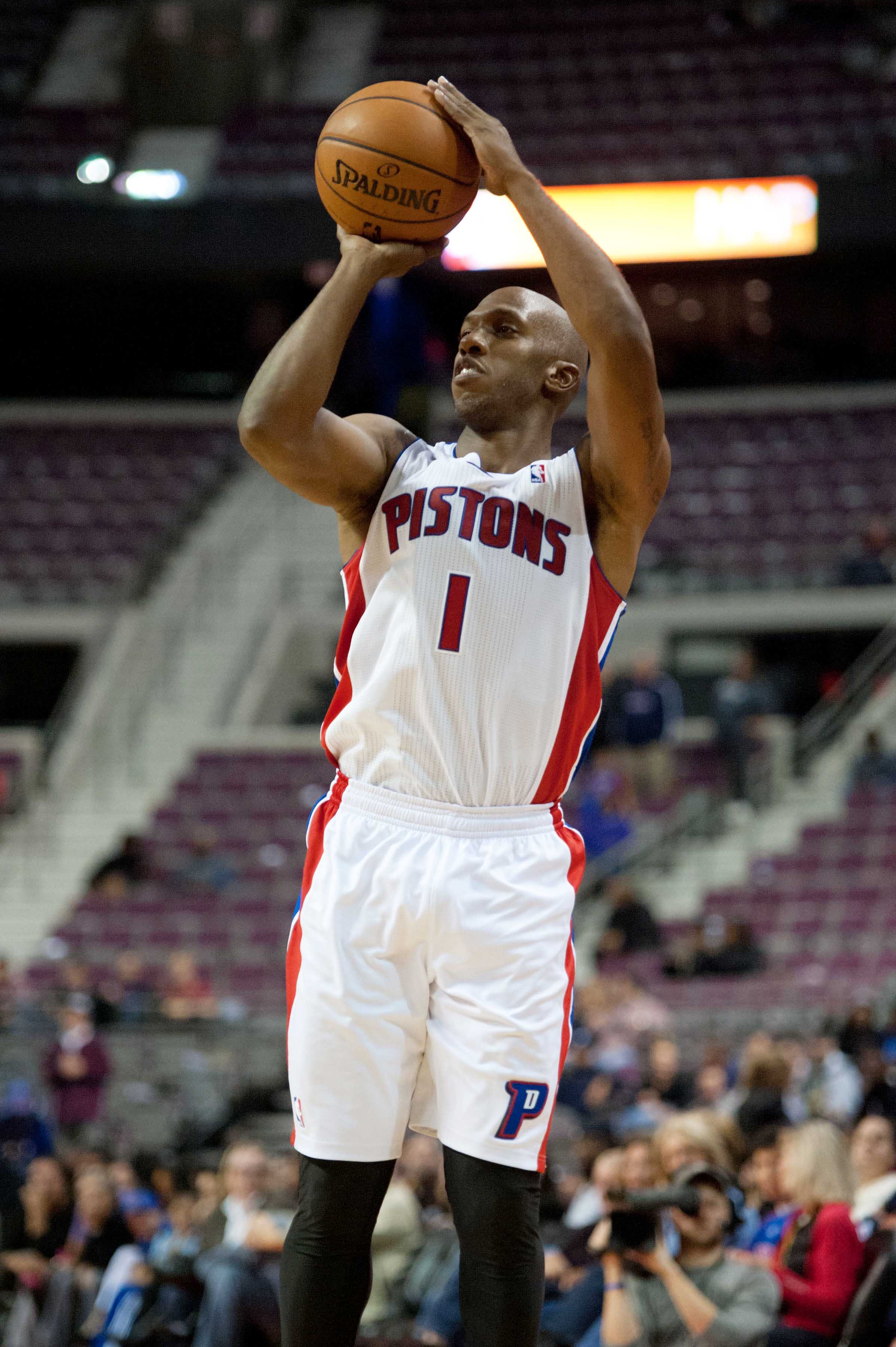
The 2003-04 Detroit Pistons were one of the most exciting teams in NBA history. They were the reincarnation of the Bad Boy Pistons who prided themselves on defense and physical play to help win them a lot of games. The Pistons were armed with bigs like Ben and Rasheed Wallace as well as defensive stalwart Tayshaun Prince and offensive-minded players like Rip Hamilton and Chauncey Billups. When they earned a trip to the NBA Finals in 2004, they had the tall task of trying to overcome a stacked Los Angeles Lakers team who had already won three NBA titles since 2000.
The Pistons were up to the task though as they dismissed the Lakers in five games to claim their first NBA title since 1990. The Finals MVP was awarded to Chauncey Billups who led the team in assists with 5.2 APG and was only one of two players to average at least 20.0 PPG in the series with the other being Hamilton at 21.4 PPG. The Finals MVP could have easily gone to Ben Wallace for the job he did slowing down Shaq in the paint and was the team’s leading rebounder. Even in the decisive Game Five, Wallace registered an 18-point, 22-rebound performance while Billups contributed just 14 points and six assists. Nevertheless, Billups was the Finals MVP and the Pistons were world champions once again.
9. Tim Duncan (2005 NBA Finals) – 20.6 PPG
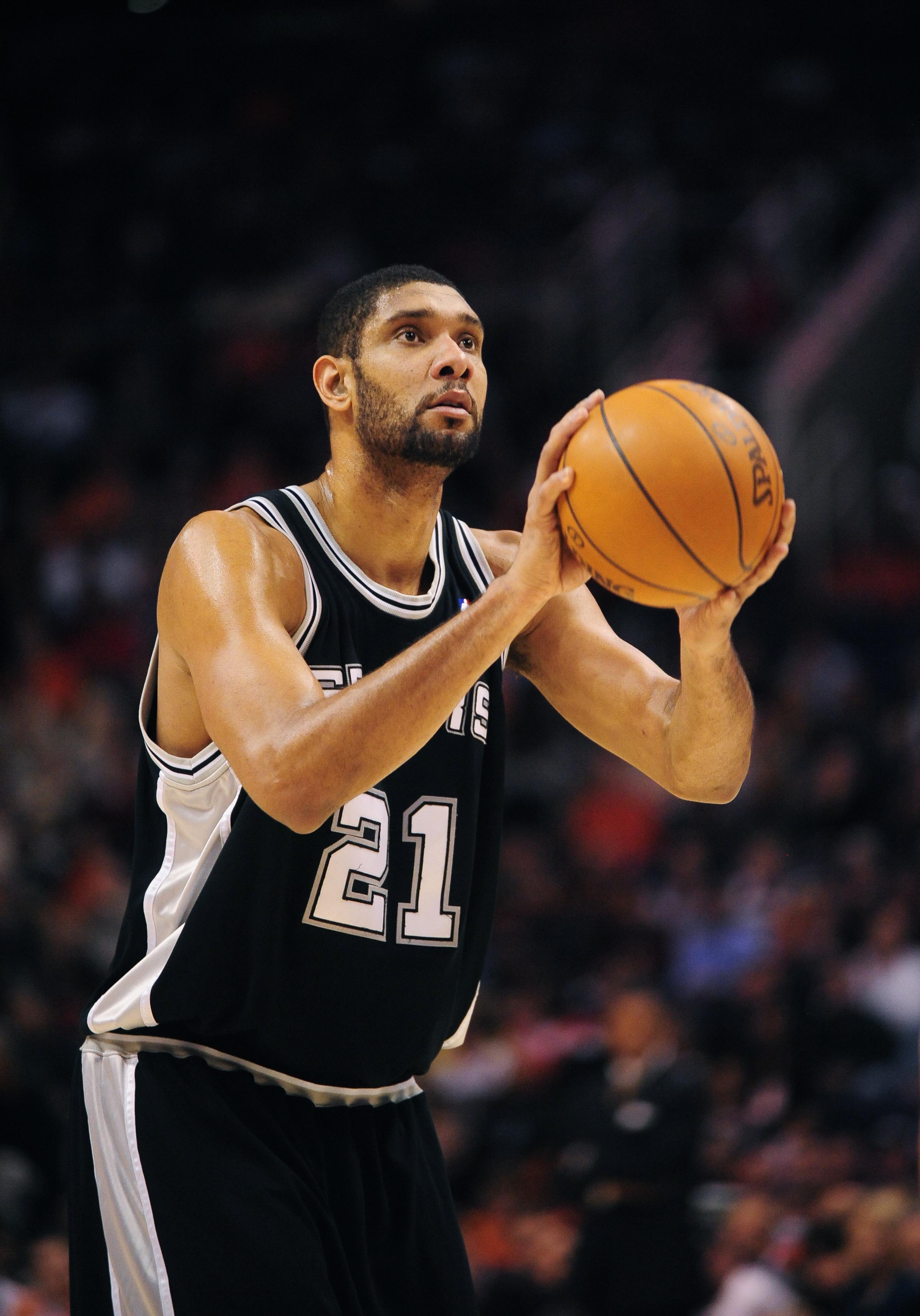
Tim Duncan is the greatest power forward the game has ever seen. He was an elite defender, rebounder, and even a scorer when his team needed him to be. Duncan’s mastery of the basic fundamentals of the game made him a nightmare matchup for any big that drew the unfortunate assignment of having to take him on. It was what he did to those bigs on the other end of the court that propelled him and the San Antonio Spurs to greatness during the 2000s and 2010s.
By the time the 2005 NBA Finals came around, the Spurs and Duncan were already two-time NBA champions. This time, the Spurs drew their toughest task yet of facing the defending champion Detroit Pistons. The game would go seven games with each team trading big moments and momentum shifts over the course of the series. In Game Seven, Duncan led all scorers with 25 points and added 11 rebounds and two blocks as well to lead the Spurs to victory. For the entire series, Duncan averaged 20.6 PPG, 14.1 RPG, and 2.1 BPG. His work on the glass against Ben Wallace and defense on the interior are what earned him his third Finals MVP award.
8. Wilt Chamberlain (1972 NBA Finals) – 19.4 PPG
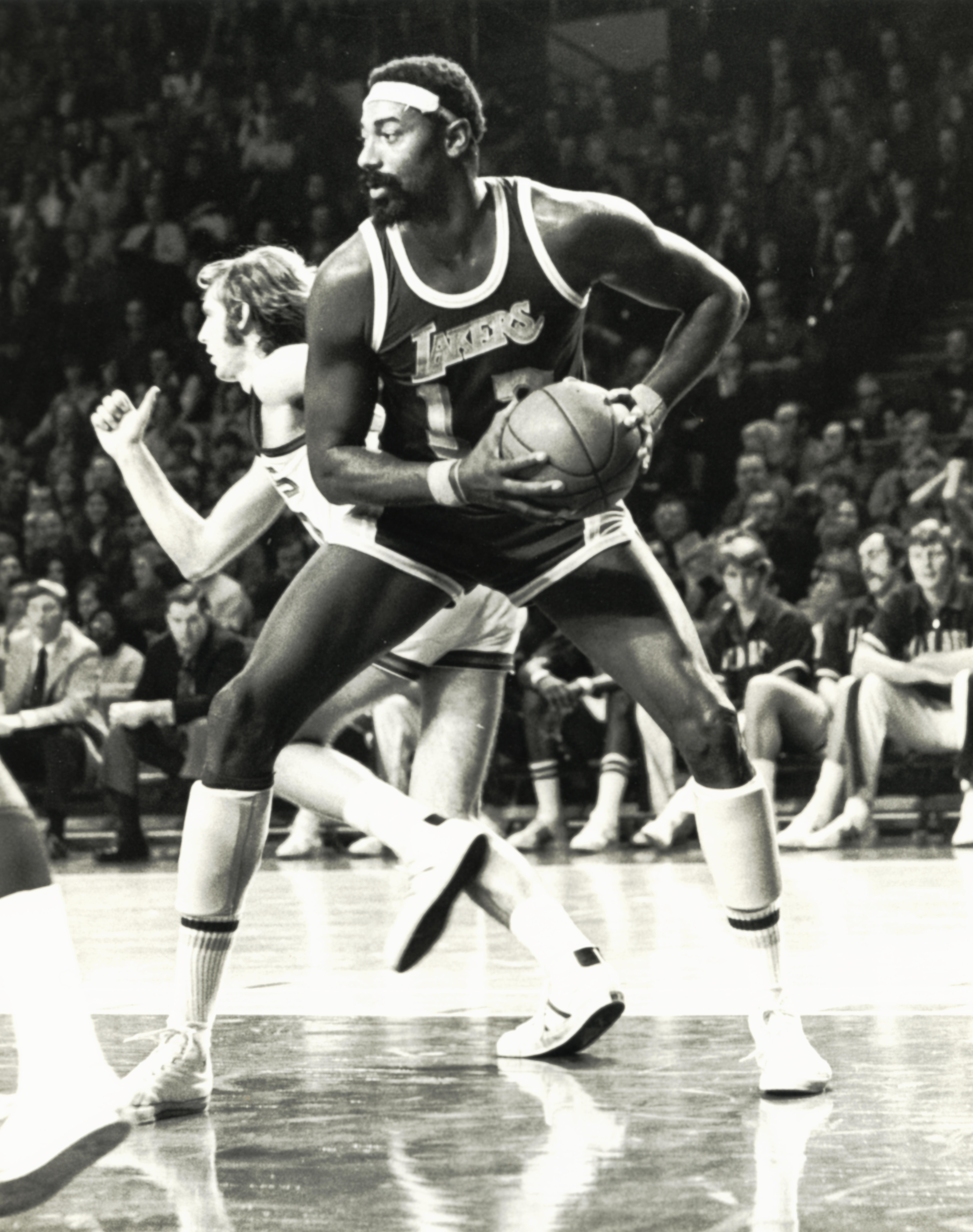
To see Wilt Chamberlain on this list comes as a surprise to many. Over the course of his NBA career, Chamberlain rewrote the record books when it comes to scoring and rebounding especially during his early days with the Warriors and Sixers. When he moved on to the Lakers later in his career, his scoring took a backseat to his rebounding and defense while stars like Jerry West and Gail Goodrich handled the offensive side of things.
In 1972, the Lakers found themselves in yet another matchup with the Knicks in the NBA Finals, a rematch from the 1970 series that saw the Knicks claim victory. While there were no defensive stats recorded, Wilt held New York big man Willis Reed in check while also pulling down an astounding 23.2 RPG for Los Angeles. The Lakers would make easy work of the Knicks in five games with Wilt as their third-leading scorer but far and away their best rebounder and defender which ultimately won them the series.
7. Bill Walton (1977 NBA Finals) – 18.5 PPG
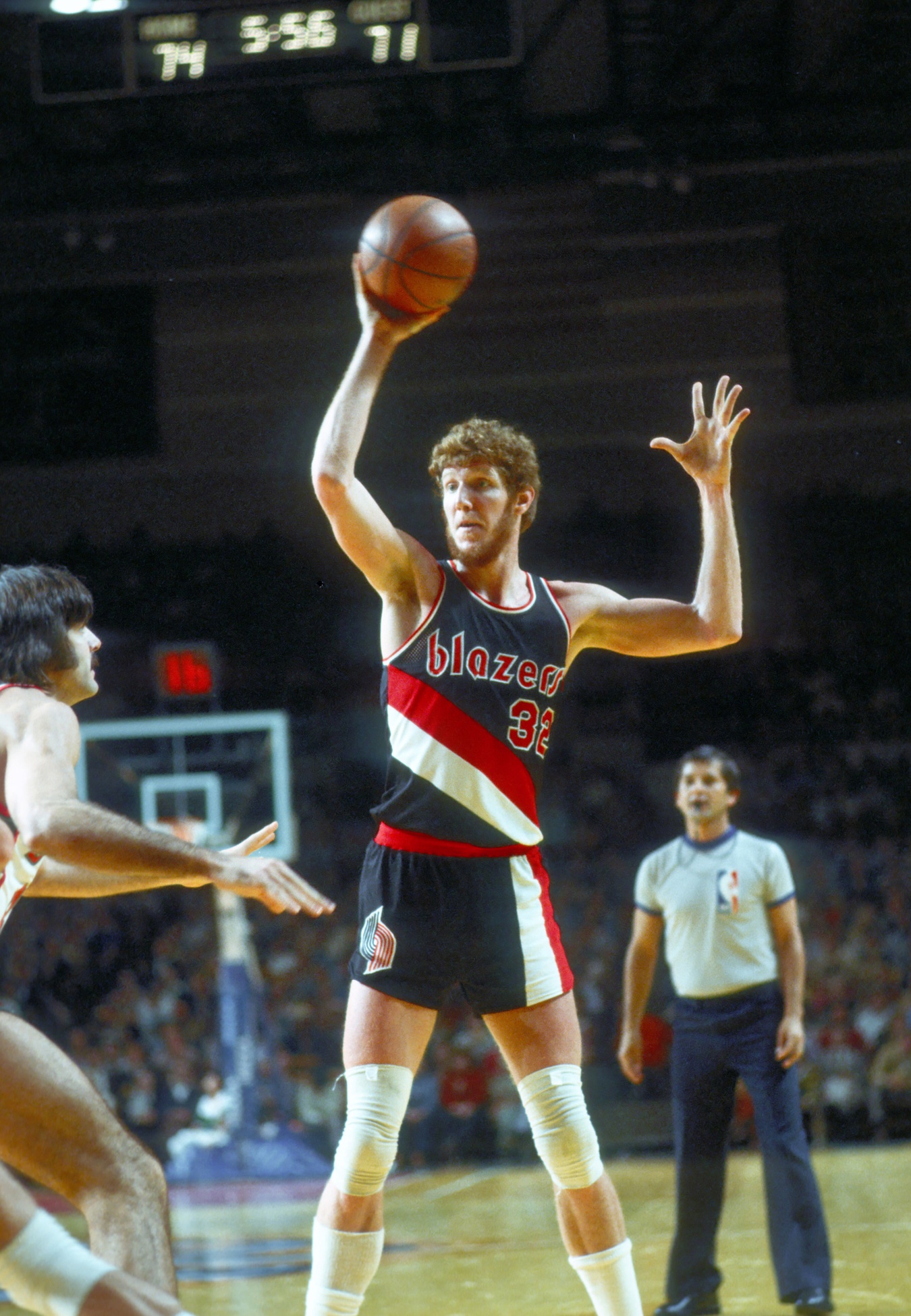
Bill Walton is still one of the NBA’s biggest mysteries when it comes to what his NBA career would have looked like had it not been for injuries. Walton was an extremely talented big man in all facets of the game but especially on the defensive side of the ball and as a rebounder. In his four seasons as a Trail Blazer, before the foot injuries began, Walton was a rebound=ing leader, blocks leader, and the 1978 MVP who looked poised to add many more awards to his mantle.
In the 1977 NBA Finals, Walton led Portland to a matchup against Julius Erving and the Philadelphia 76ers. The series began with Philadelphia taking the first two games at home to put Portland in an early 2-0 hole. This is where Walton would show why he was the Finals MVP as an elite defender and rebounder who would lead Portland to four straight wins and their only NBA championship. Walton would end up averaging 18.5 PPG, 19.0 RPG, and 3.7 BPG over the course of the six games with his defense and presence in the paint stealing the show.
6. Kawhi Leonard (2014 NBA Finals) – 17.8 PPG
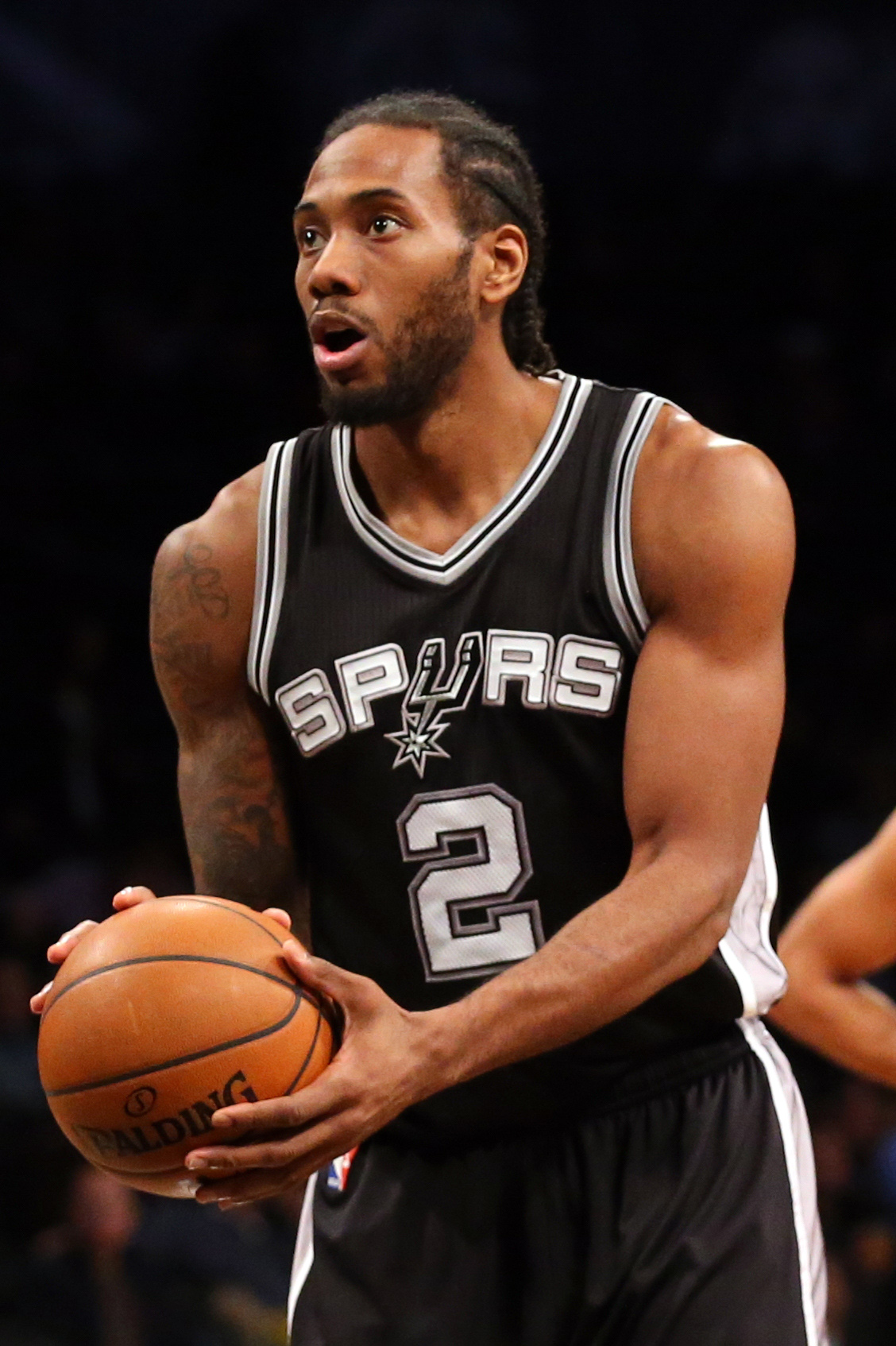
In his prime, Kawhi Leonard is probably a Top 10 two-way talent that the league has ever seen. Over time, he developed an offensive game to match his defensive capabilities to become one of the most dangerous players in the NBA. Before he added skills to his offensive catalog, Leonard was looked at as a pure defender, an elite one at that, but with no love for his offense and was treated as such by opponents on that end of the floor.
Just three seasons into his career, Kawhi found himself in his second NBA Finals as a member of the Spurs. Just the season before, Leonard struggled with LeBron James on the big stage and San Antonio ended up dropping their first NBA Finals matchup with Miami. In 2014, the tables would turn as Kawhi got even better on defense and stifled James whenever he was guarding him. You all remember that meme where LeBron shows visible displeasure when Kawhu checks into the game, right? Leonard’s defensive effort netted him his first Finals MVP award and jumpstarted his ascent to stardom.
5. Cedric Maxwell (1981 NBA Finals) – 17.7 PPG
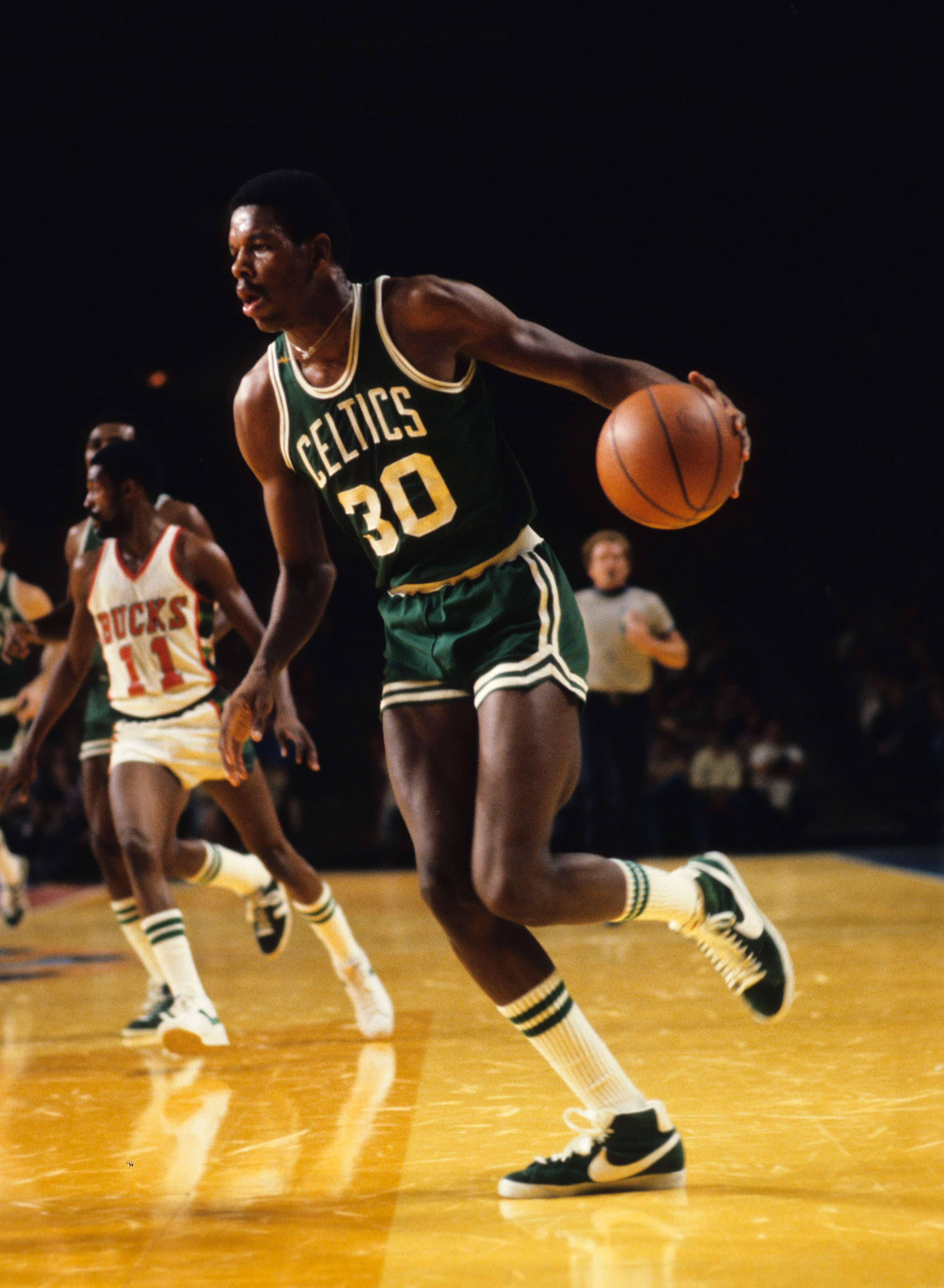
Cedric Maxwell is one of the many outliers that have taken home a Finals MVP award in their careers. Maxwell was a consistent double-digit scorer, solid rebounder, and a pesky defender during his days with the Celtics in the late 70s and 80s. Maxwell was never an All-Star nor was he ever an All-NBA Team or All-Defensive Team selection. For one series in 1981, however, he was seen as the best player on the court which ended up being the biggest accomplishment of his career.
Larry Bird could have easily been the MVP of the 1981 Finals as he averaged 15.3 PPG, 15.3 RPG, 7.0 APG, and 2.3 SPG for the series. He was the most complete and all-around player on the court but we can point to two instances that sealed the award for Maxwell. In a decisive Game Five, Maxwell led all scorers and rebounders with a 28-point, 15-rebound performance to give the Celtics a 3-2 series lead. To seal the deal in Game Six, Maxwell recorded 19 points, five rebounds, and six assists to deliver the title back to Boston. Many think the Finals MVP was a robbery from Bird and you can certainly make the case but let’s not act like Maxwell was truly undeserving of it.
4. Willis Reed (1973 NBA Finals) – 16.4 PPG
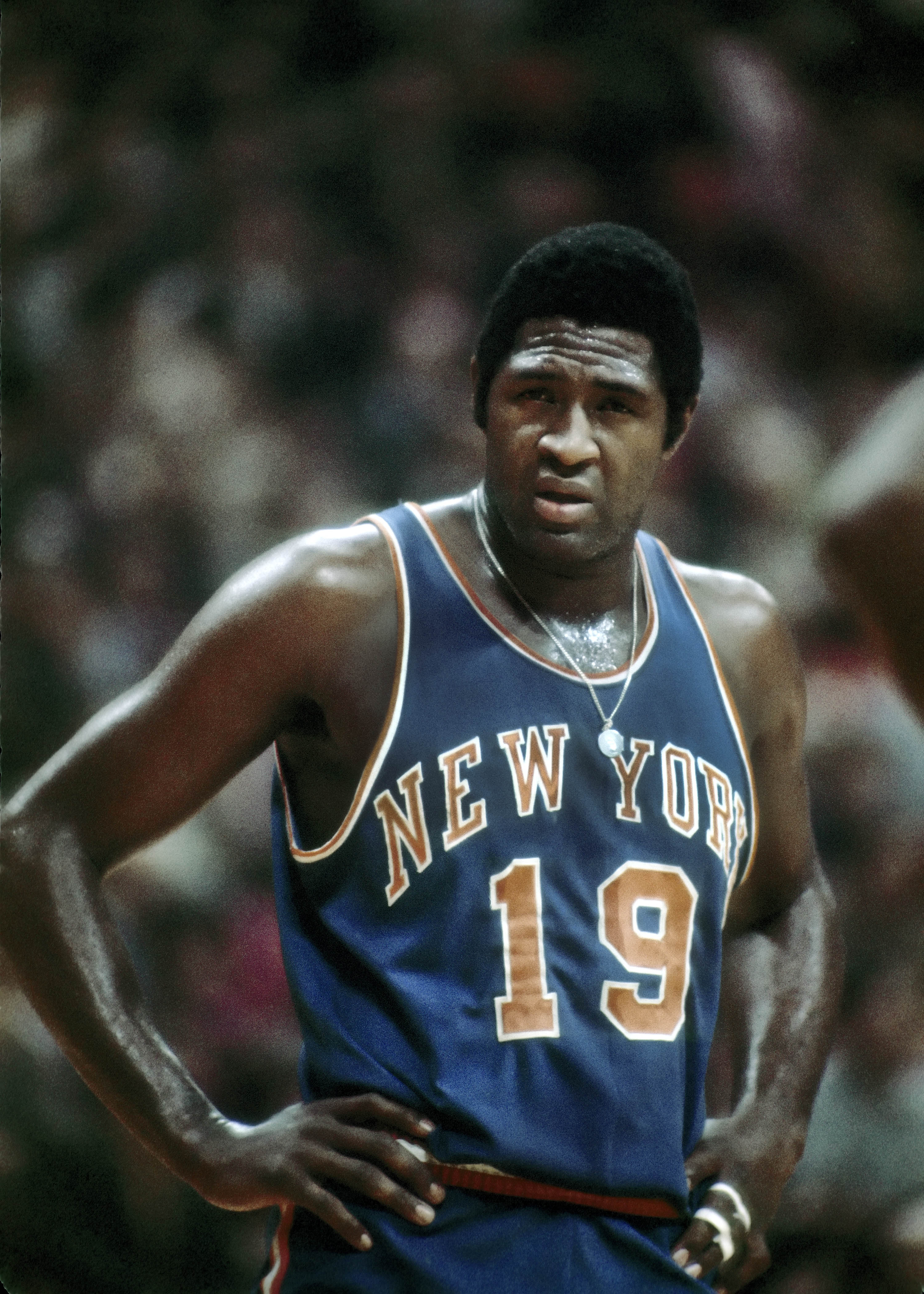
Willis Reed is the greatest player in Knicks history or at least one of them. His gutsy performance in the 1970 NBA Finals energized the Knicks to an NBA championship over the Lakers. In 1972, the Knicks would lose to the Lakers in a five-game domination by Los Angeles. Reed was wearing down at this time but was still a solid interior presence who knew how to frustrate and take Wilt Chamberlain off of his game considering how many times they met in the NBA Finals before.
After dropping the first game in dramatic fashion, the Knicks would never look back for the remainder of the series. They would win four straight games to claim their second NBA title led by Reed and Walt Frazier. Reed would be the Knicks’ leading rebounder with 9.2 RPG but more importantly, he stifled Chamberlain on the defensive side of the ball. Reed held Wilt to just 11.6 PPG despite giving up 18.6 RPG on the glass to the much bigger Chamberlain. Reed’s second Finals MVP award was predicated on his defensive effort against one of the greatest offensive players of all time.
3. Andre Iguodala (2015 NBA Finals) – 16.3 PPG
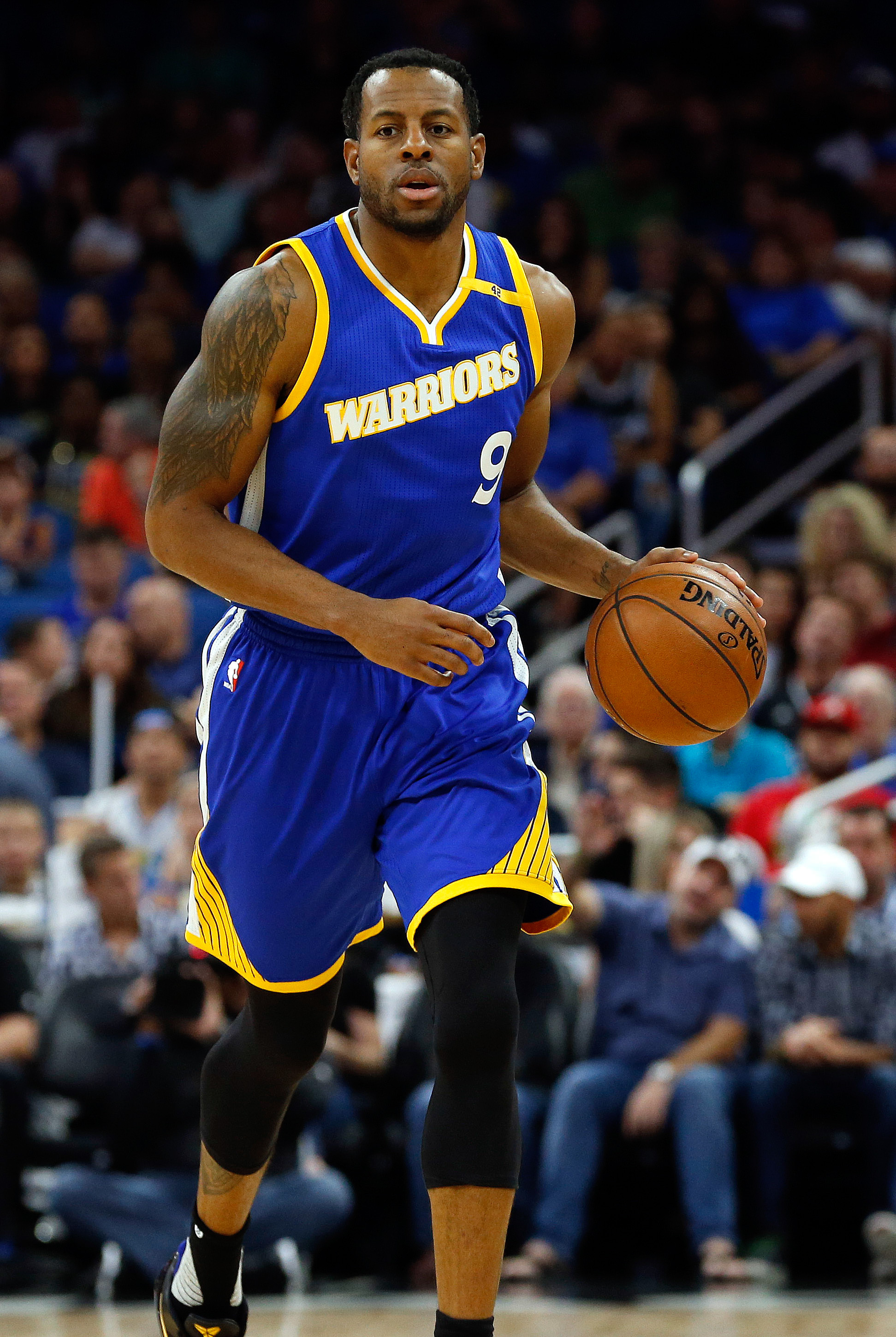
The story of one of the 2015 Finals MVP award winner is one that is sure to be talked about for the rest of NBA history. The Golden State Warriors had made it back to the NBA Finals and were ushering in the new era of the Splash Bros with Stephen Curry, Klay Thompson, and Draymond Green. Andre Iguodala was seen as one of the Warriors’ best defenders at the time and a solid veteran presence in a youth-filled lineup that was looking to capture their first NBA championship.
The Warriors and Iguodala drew the tough task of the Cleveland Cavaliers and LeBron James in the NBA Finals. At first glance, LeBron had a tremendous series to nearly give Cleveland the win. However, when guarded by Iguodala, James struggled especially in clutch moments which is why the Finals MVP eventually went to him for his efforts. The award could have easily gone to Curry who led the team in scoring and provided the majority of the offense for Golden State, a topic that will seemingly never die among his and the Warriors’ fanbase.
2. Magic Johnson (1982 NBA Finals) – 16.2 PPG
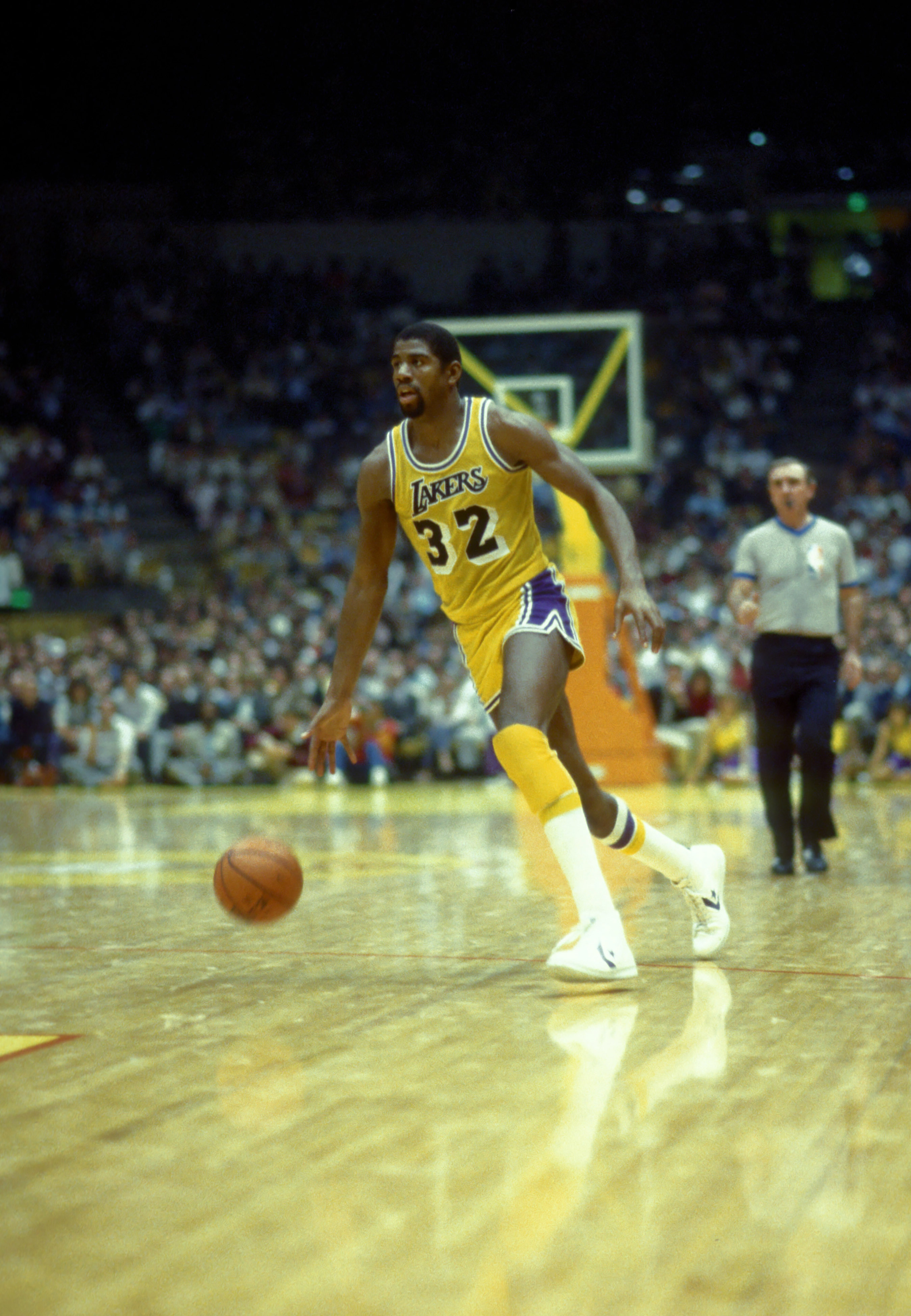
As the greatest playmaker ever, it isn’t hard to break down how much Magic Johnson meant to the Lakers’ success in the 1980s. Magic helped deliver five NBA titles to the Lakers in the 80s while taking home three MVP awards as well as three Finals MVP awards. He ran the Showtime Lakers offense to perfection and wore teams down with his pace of play and incredible court vision. He made everyone around him a better player and racked up assists at an astronomical rate.
After winning Finals MVP as a rookie in 1980, Magic and the Lakers found themselves back in the NBA Finals just two seasons later. This time, the showdown and spotlight were on him and Sixers legend Julius Erving as the two clashed for the right to be named NBA champion. Magic had about as complete of a series as a point guard could have despite his low-scoring output at just 16.2 PPG. In the six games, he also added 10.8 RPG, 8.0 APG, and 2.5 SPG which all led the Lakers for the series. When you add that context, Magic was undoubtedly the Finals MVP in 1982.
1. Wes Unseld (1978 NBA Finals) – 9.0 PPG
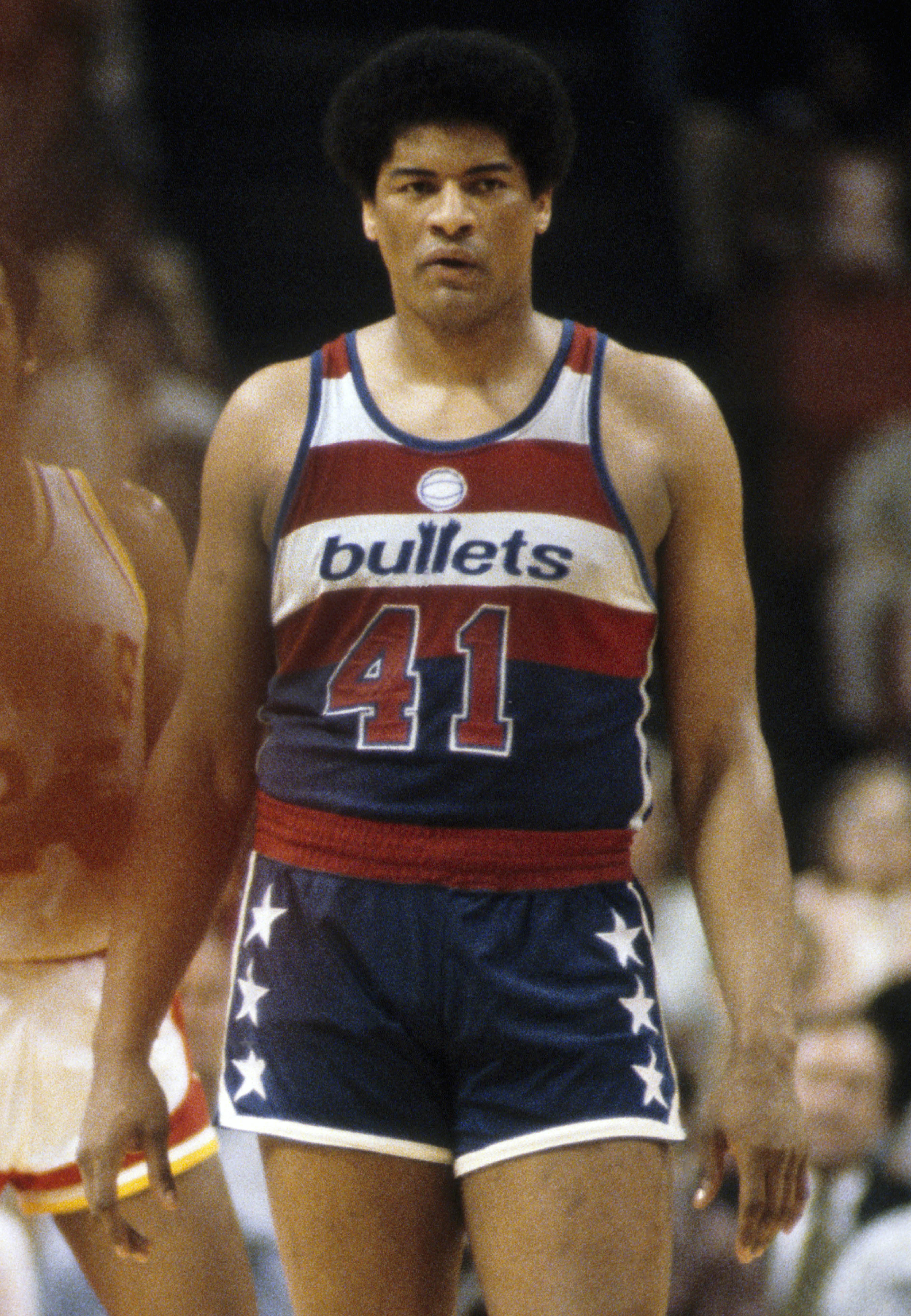
Wes Unseld was never once in his career held in high regard as a scorer. Where Unseld got his recognition was from his unrelenting rebounding skills and tough, physical interior defense. This is the same man that won MVP as a rookie in 1969 averaging just 13.8 PPG but 18.2 RPG and defensive wizardry for the Baltimore Bullets. In the season in which they finally won a title in 1978, Unseld was even more limited offensively with the presence of Elvin Hayes alongside him in the front court but they were the deadliest duo in basketball at the time.
Hayes would be the other Bullets player in line for the Finals MVP in 1978. However, Hayes was notoriously vicious to both the media and his teammates so unfortunately, he was never going to win the award for those reasons alone. Unseld averaged just 9.0 PPG but he also added 11.7 RPG and 3.9 APG. Bob Dandridge was the other 20.0 PPG scorer for |Washington but the award was Unseld’s for his defensive efforts that stifled Jack Sikma and Gus Williams in Game Seven.
The Finals MVPs With The Most PPG
10. Shaquille O’Neal (2001 NBA Finals) – 33.0 PPG
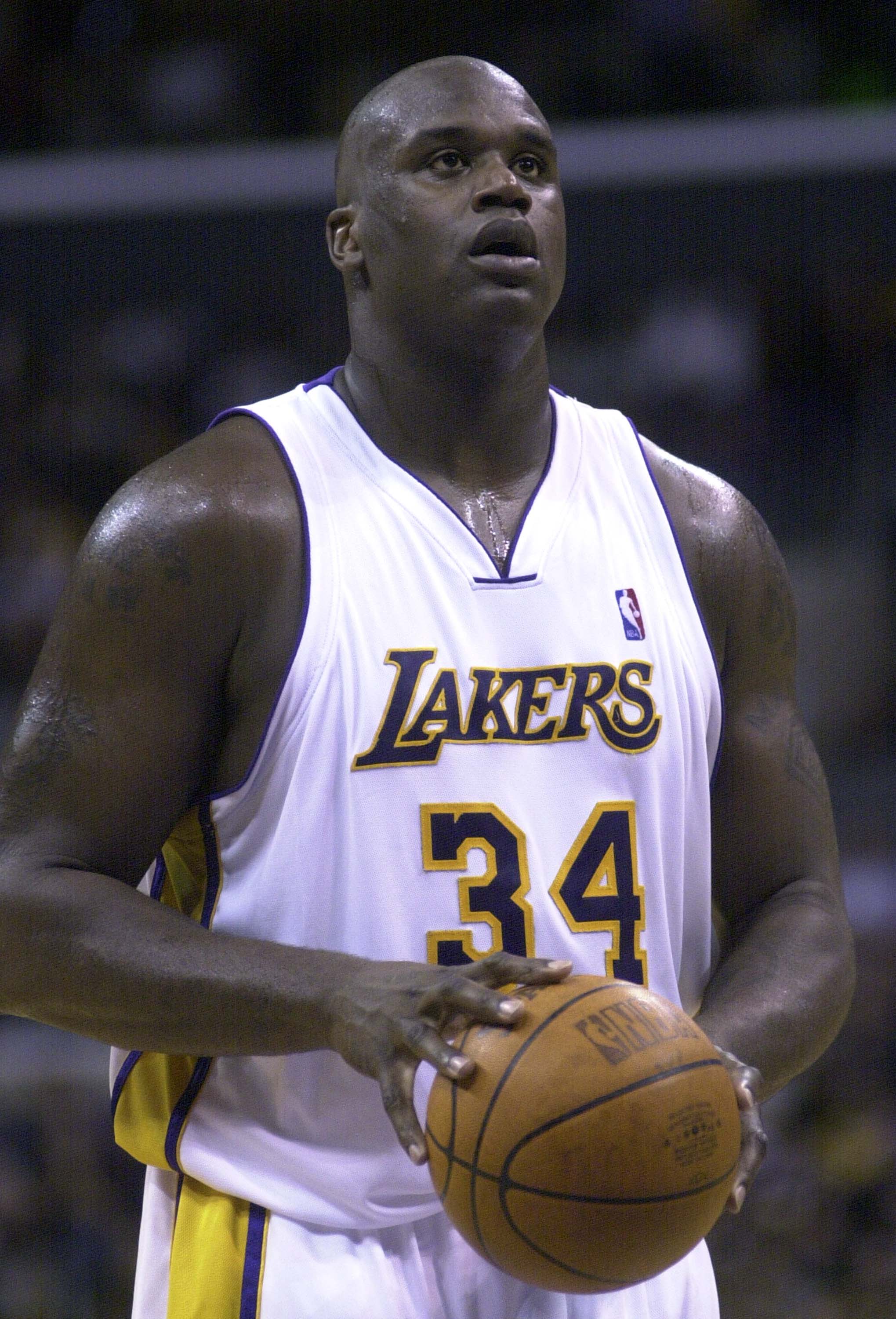
During the early 2000s, Shaquille O’Neal was in the prime of his career as the game’s top 7-footer and best player. He had been a dominant scorer before, even in his younger years with the Orlando Magic, winning a scoring title in 1995 with 29.3 PPG. That was nothing compared to the player he would become in the early 2000s with the Lakers winning MVP awards and three-peating as an NBA champion and Finals MVP leading the way each time.
In 2001, the Lakers were coming off an NBA championship and Shaq was coming off his near-perfect season as an individual winning MVP and Finals MVP in the 2000 season. The Lakers went on a dominant stretch in the postseason that didn’t see them lose a single game until Game One of the NBA Finals where they met new MVP Allen Iverson and the Sixers. Shaq controlled the matchup with reigning Defensive Player of the Year Dikembe Mutombo for the next four games to lead the Lakers to their second straight NBA title. O’Neal was named Finals MVP averaging 33.0 PPG, 15.8 RPG, 4.8 APG, and 3.4 BPG.
9. Michael Jordan (1998 NBA Finals) – 33.5 PPG
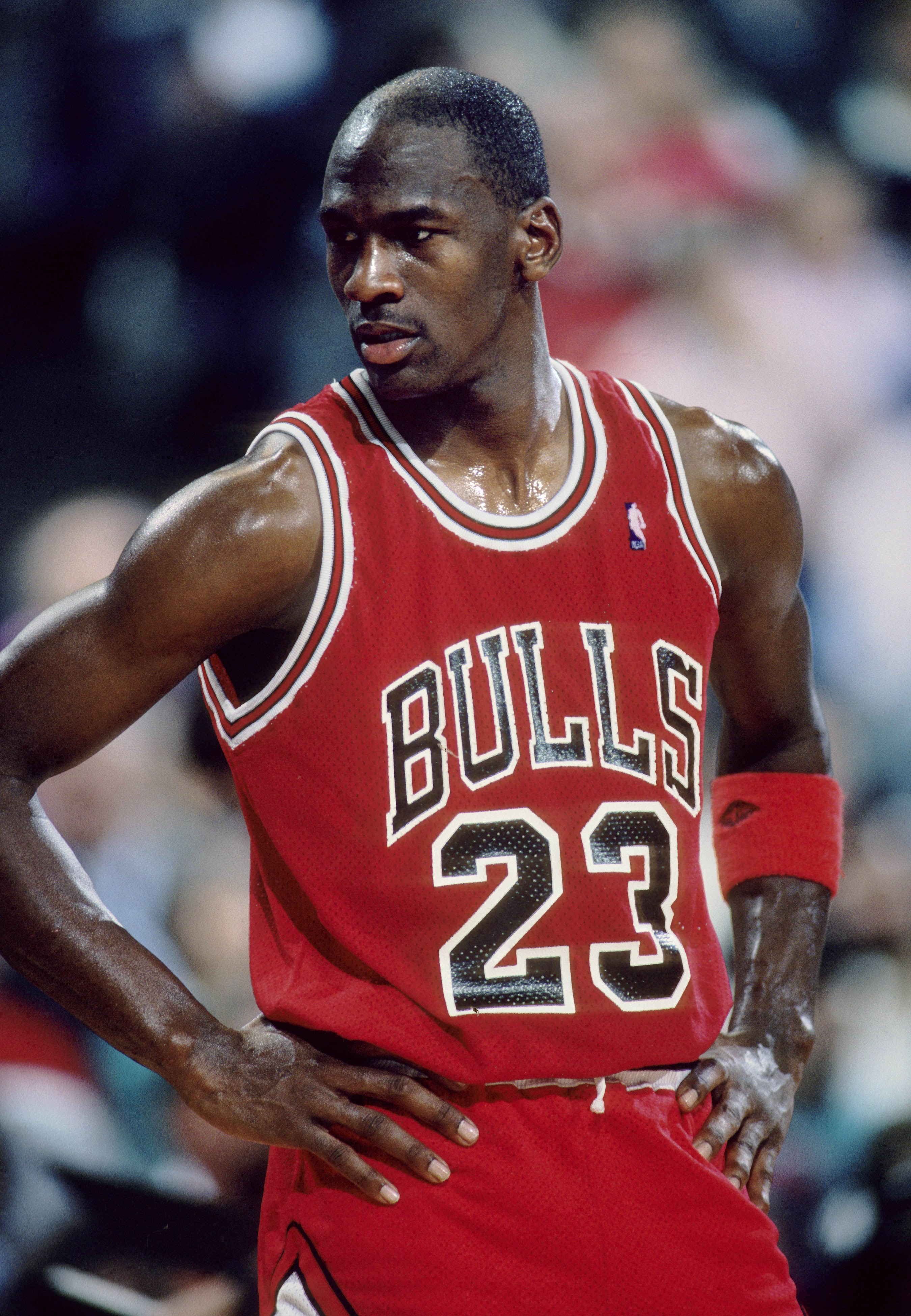
By the time that the 1998 NBA Finals came around, it was well-known that it would be the Last Dance for Phil Jackson as a coach and the core of Michael Jordan, Scottie Pippen, and Dennis Rodman. Jordan had won five NBA titles already, and every Finals MVP award that came with them. Just prior to the 1998 NBA Finals, it was announced that Michael Jordan was the winner of his fifth MVP award now as well.
The Bulls headed into a matchup with the Utah Jazz for the second season in a row on the NBA’s biggest stage. Jordan would have 33 points in a Game One loss and 37 points in a Game Two win to spilt the first two games of the series. The Bulls would win Game Three behind 24 points from Jordan and Game Four behind 34 points from His Airness once again. After the Jazz won Game Five, the Bulls would close things out in Game Six. Jordan would hit a game-winning jumper to seal his sixth NBA championship and earn his sixth career Finals MVP award.
8. Dwyane Wade (2006 NBA Finals) – 34.7 PPG
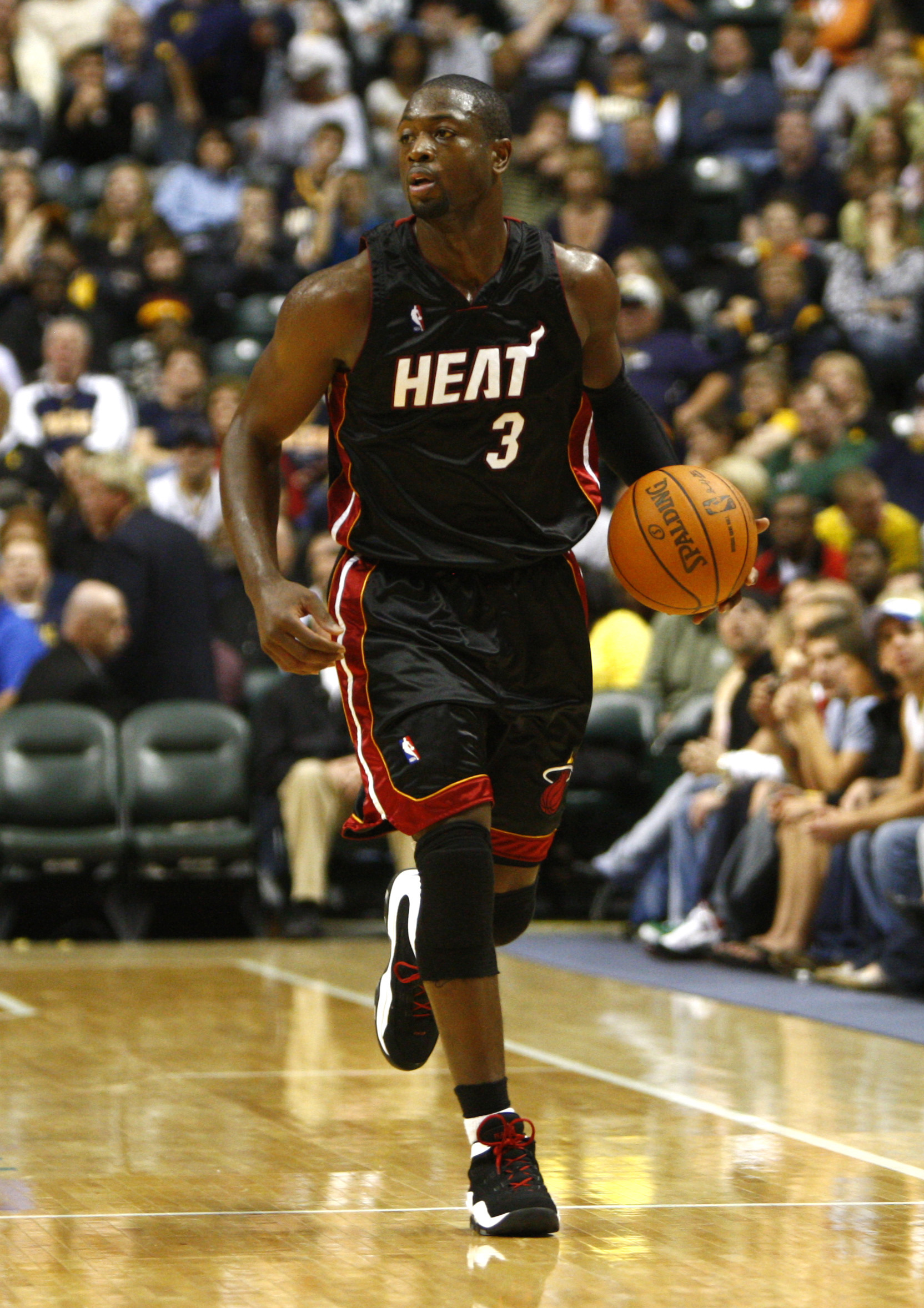
Dwyane Wade is one of the five greatest shooting guards to ever play the game. The energy he played with on both sides of the ball was contagious and the way he attacked each possession on the offensive side of the ball was methodical. It didn’t take long for Wade to become a Top Three player during the 2000s and 2010s as he put on one of the greatest performances in 2006, just his thor season in the league, that we have seen in NBA Finals history.
The 2006 NBA Finals got off to a rocky start with Dwyane Wade and the Heat struggling to get anything going. They would drop the first two games of the series against the Dallas Mavericks and things looked bleak for Wade and the Heat. In Game Three, Wade carried Miami to a two-point win with 42 points and 13 rebounds. In Game Four, he helped them even the series with 36 points. Wade would close things out for Miami over the next two games with 43 points and 36 points once again to win Miami and himself their first NBA title. Wade averaged 34.7 PPG, 7.8 RPG, 2.7 SPG, and 1.0 BPG to claim the Finals MVP award.
T7. Giannis Antetokounmpo (2021 NBA Finals) – 35.2 PPG
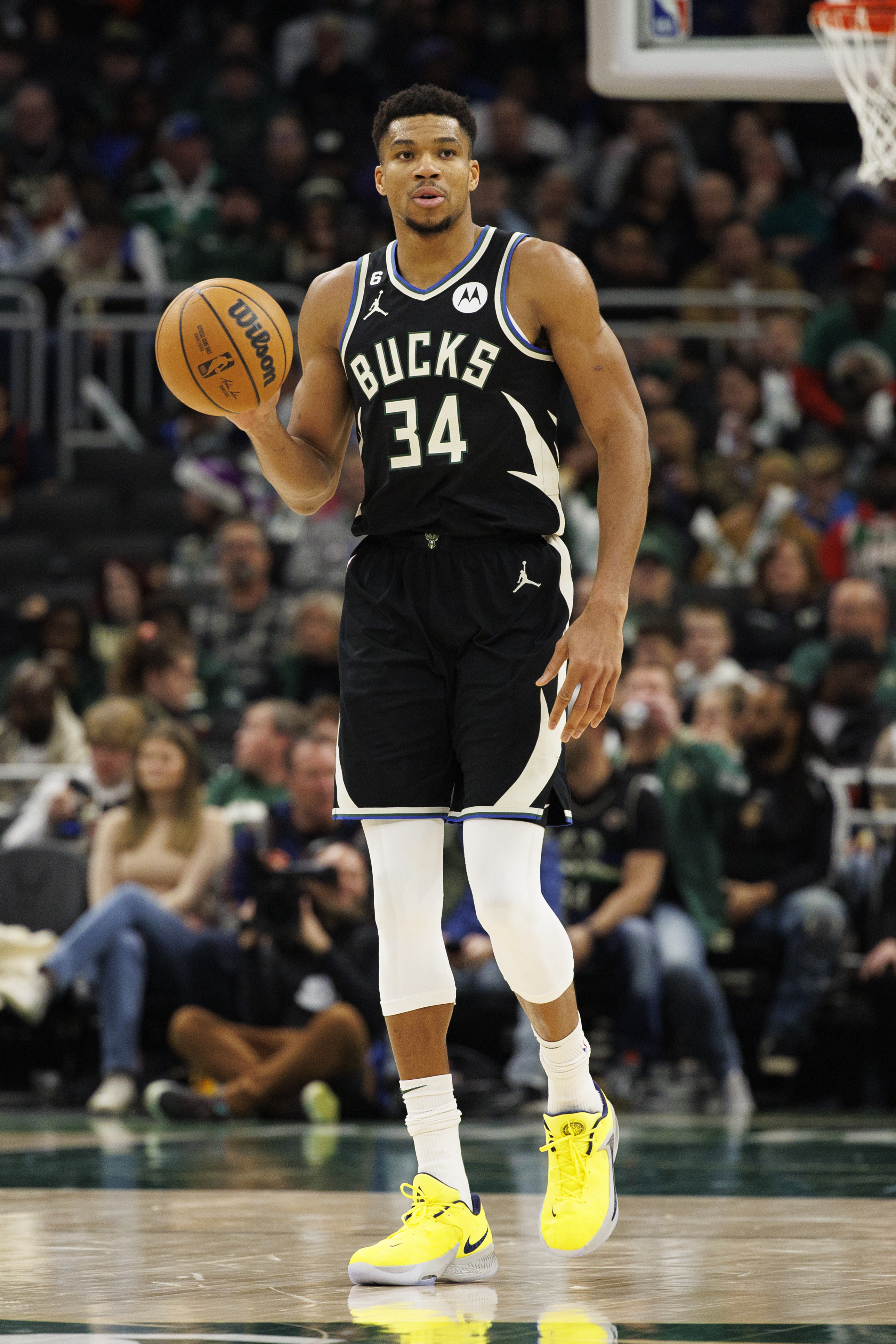
Giannis Antetokounmpo’s journey through the NBA has been incredible so far. He went from a skinny and underdeveloped kid from Greece to the consensus best player in the world over the span of his first four seasons in the league. Giannis has already claimed two MVP awards, a Defensive Player of the Year award, and one of the most dominant performances in NBA Finals history just two years ago. He is once again seeking his third MVP award still in 2022-23.
Coming off an MVP season in 2020 and an eventual early exit from the NBA playoffs, Giannis set out to prove he was worthy of the best player in the world conversation in 2021. Giannis led the Bucks to the NBA Finals for a matchup with the Suns led by Chris Paul and Devin Booker. Much like Wade and the Heat, Giannis and the Bucks fell down 2-0 in the series heading into Game Three. Giannis would have 41 points in Game Three, 26 points in Game Four, and 32 points in Game Five to lead the Bucks to a 3-2 series lead. In Game Six, Giannis recorded 50 points, 14 rebounds, and five blocks to deliver Milwaukee’s first championship in 50 years.
T7. Kevin Durant (2017 NBA Finals) – 35.2 PPG
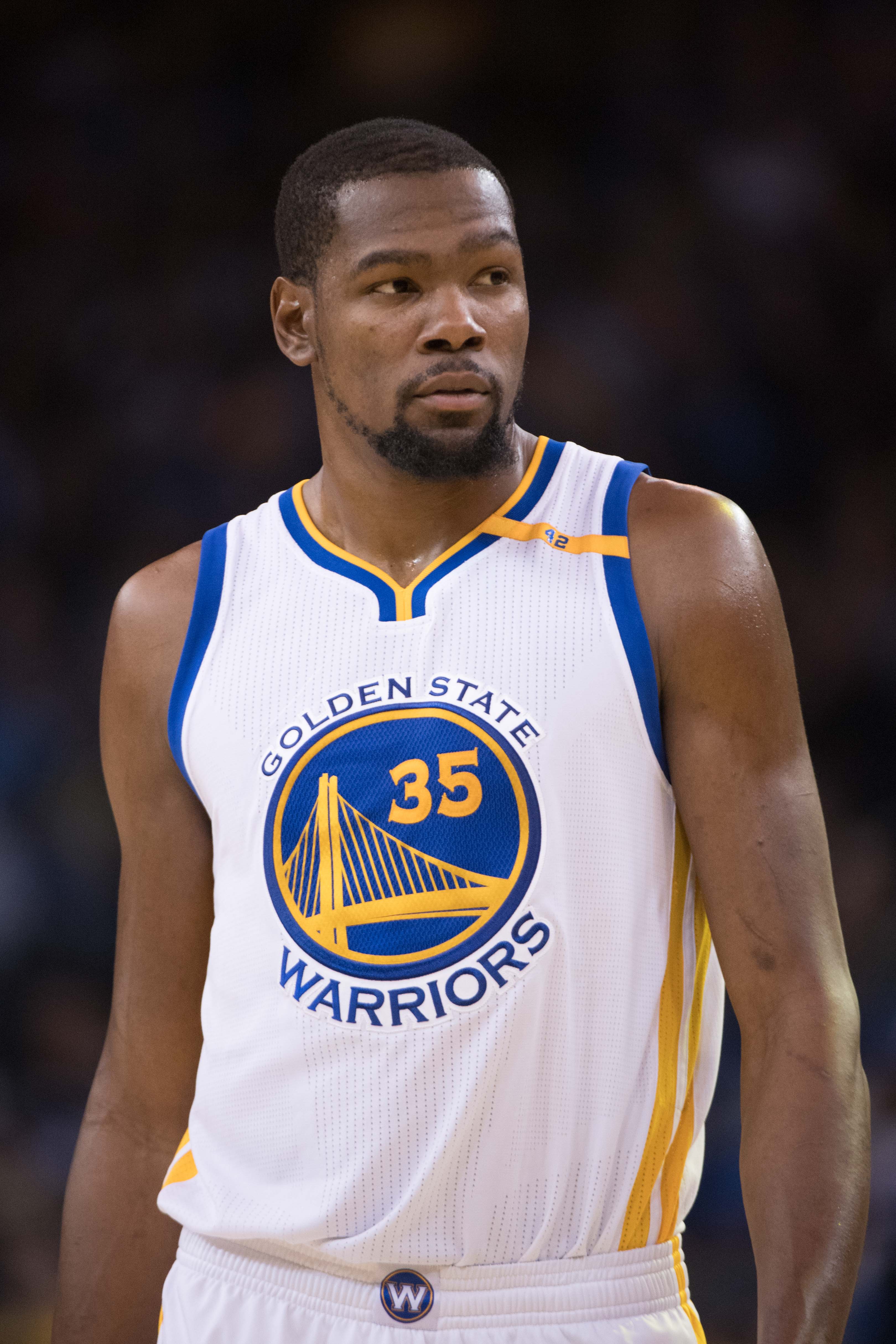
Kevin Durant is one of the most offensively gifted players in NBA history so his name on this list should not come as a surprise. Durant spent the majority of the beginning of his career with the Oklahoma City Thunder where he always fell just shy of an NBA title. In 2016, Durant decided he was going to leave for the Warriors in free agency, one season after they had just gone 73-9 but were defeated in the biggest upset in NBA Finals history against the Cavaliers.
Durant and the Warriors looked unbeatable throughout the regular season in 2017 and breezed through the playoffs as well. This set up a rematch of the Warriors and Cavaliers from the previous two seasons. Durant and the Warriors proved to be far too much for the Cavaliers in the series and ended up dropping them in five games for their second NBA championship Durant led the scoring in both Games One and Two with 38 and 33 points respectively. He closed things out in Game Six with a 39-point game on 14-20 shooting or 70.0% from the field.
5. Michael Jordan (1992 NBA Finals) – 35.8 PPG
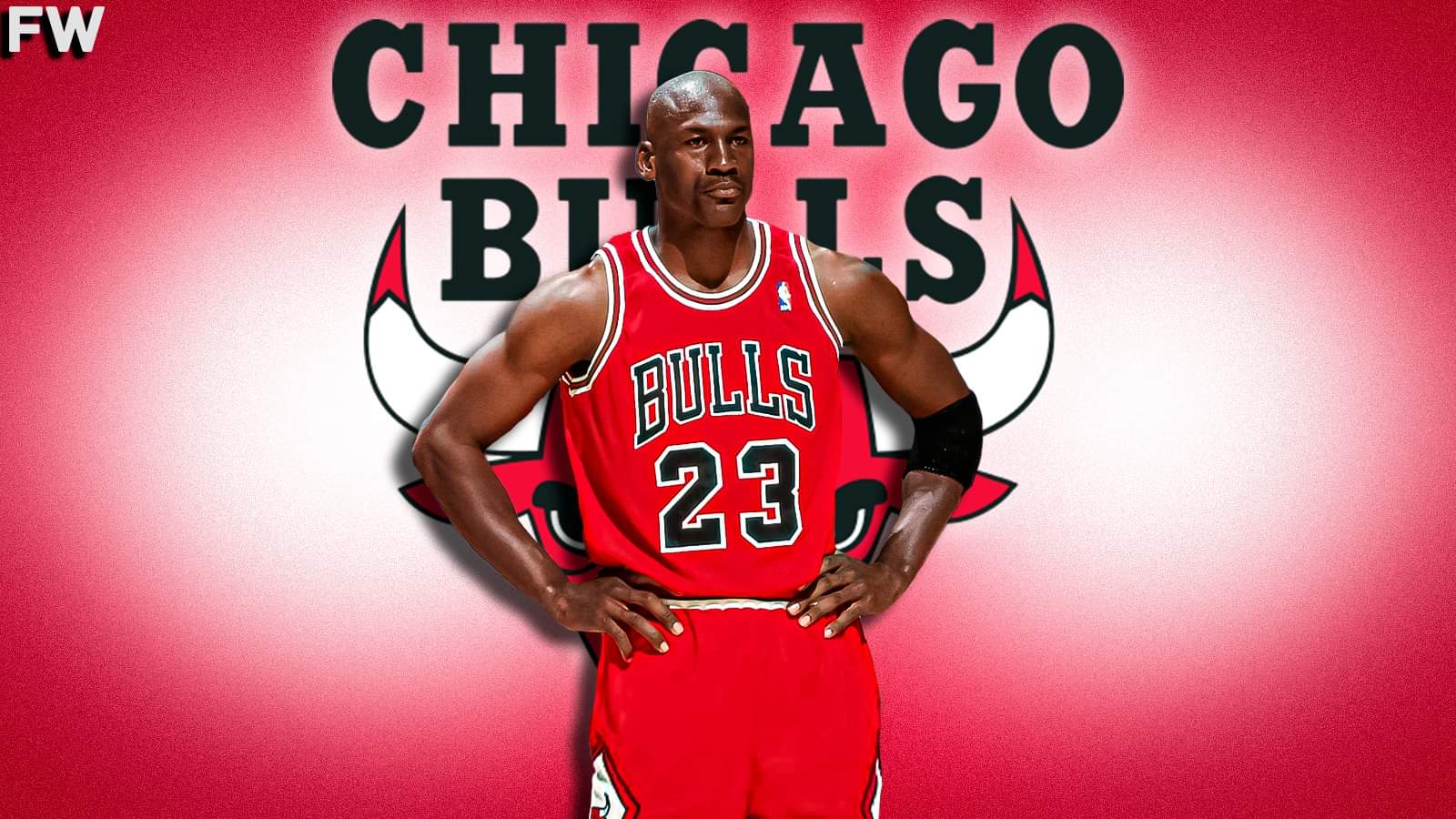
In 1991, Michael Jordan and the Chicago Bulls were coming off their first NBA championship. Now that they had finally gotten over the proverbial hump and come out on top, Jordan and the team wanted to prove that they could do it once more. On the other side of things was Clyde Drexler and the Portland Trail Blazers. Portland had been in the Fionals just two seasons earlier but they fell to the Pistons in the end. The storyline heading into this matchup was that Jordan couldn’t shoot and Drexler was on the same level as him. This was a mistake by the national media.
In Game One, Jordan came out and put the world on notice going for 39 points and breaking an NBA record by knocking down six three-pointers in the first half. After Portland won Game s Two and Fpur, Jordan would not let a second NBA title slip through his fingers. To give the Bulls a 3-2 lead in Game Five, Jordan dropped 46 points for the win. He would come out the next game to seal the title and Finals MVP with 33 points in a four-point victory.
4. Shaquille O’Neal (2002 NBA Finals) – 36.3 PPG
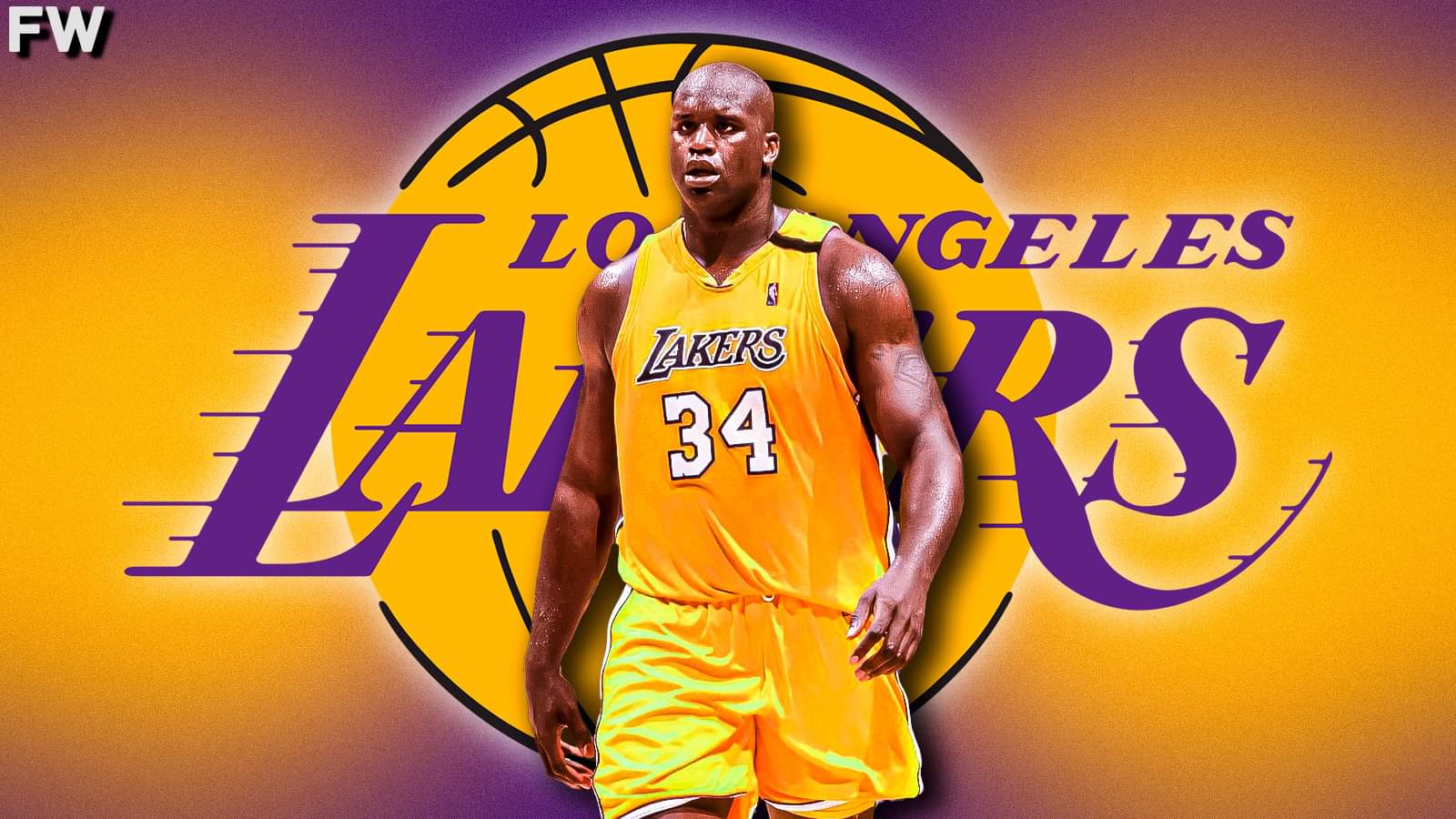
Headed into 2002, the claim was quite clear that Shaq was the best player in the world and the Los Angeles Lakers were nearly impossible to beat. The same would be said in 2002 as the Lakers steamrolled the competition to a 58-24 record during the regular season. Shaq would dominate once again with 27.2 PPG as the most unstoppable force in the league and the biggest and baddest 7-footer the NBA had ever seen.
After a 7-1 record through the first two rounds, the Lakers were brought to the brink of elimination in the Western Conference Finals but ended up heading to their third straight NBA Finals against the New Jersey Nets. The Nets stood no chance in the series with Kenyon Martin, Jason Collins, and Todd MacCulloh struggling to contain Shaq. O’Neal would go for 36 points and 40 points in Games One and Two to start the series off hot and the Lakers would end up three-peating with O’neal grabbing his third Finals MVP award in a row as well.
3. Jerry West (1969 NBA Finals) – 37.9 PPG
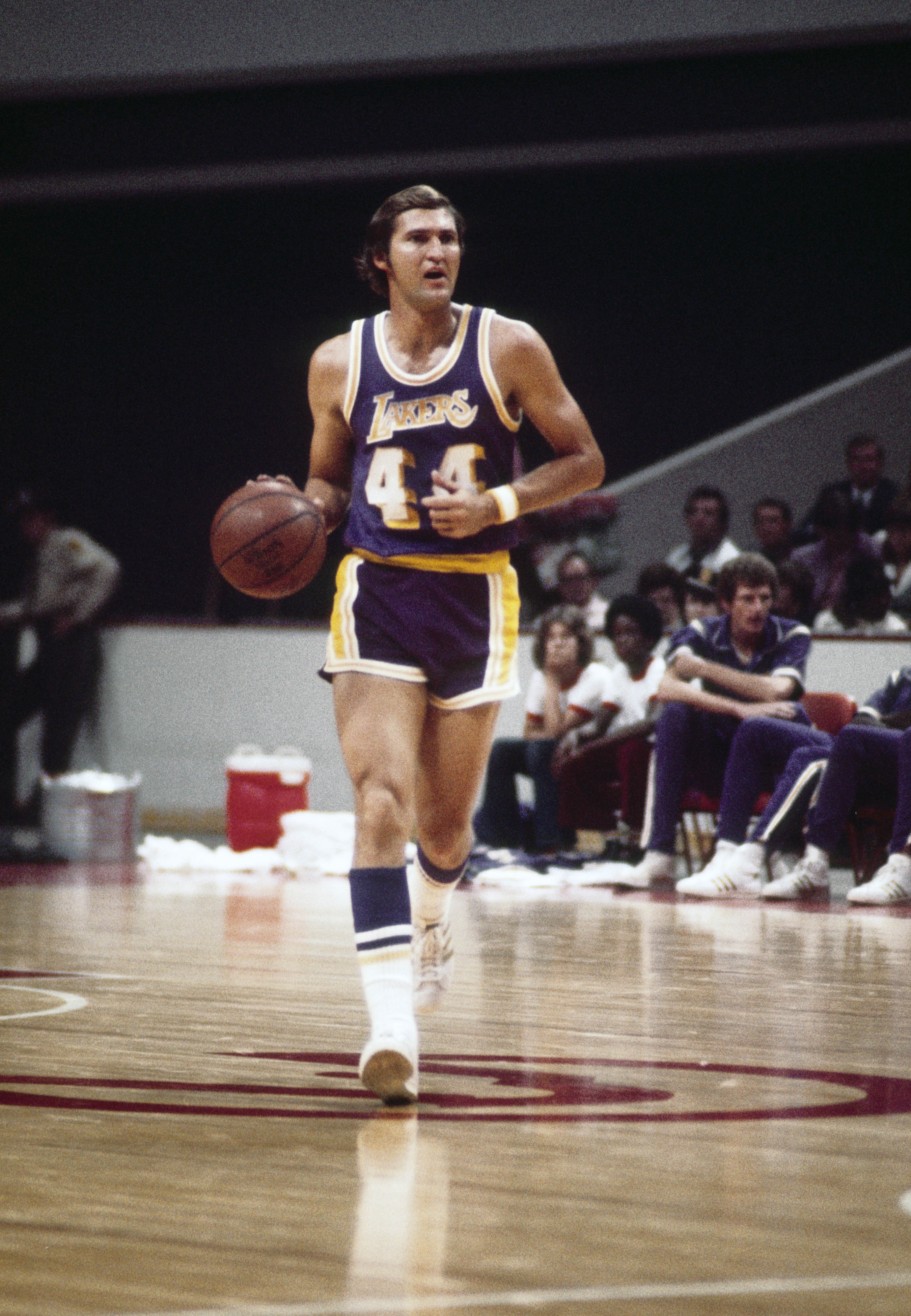
Jerry West is one of the top point/shooting guards in NBA history. He was the game’s first great jump shooter who was actually hurt legacy-wise by the absence of a three-point line. West led the Lakers to nine Finals appearances during his NBA career and was only victorious in one in 1972. As a matter of fact, Jerry West is the only player in NBA history to win the Finals MVP in a losing effort which is exactly what happened the first year they handed out the award in 1969.
West and the Lakers squared off with the Boston Celtics in the 1969 NBA Finals just as they did on countless occasions before. West’s best performance in the series came in a Game One close victory. He scored 53 points to help the team take a 1-0 series lead. He had another big game in Game Four with 40 points but the Lakers lost to even the series 2-2. In Game Seven, West recorded 42 points but the Celtics won the game and the NBA title by two points behind 20 points each from John Havlicek, Em Bryant, and Sam Jones.
2. Shaquille O’Neal (2000 NBA Finals) – 38.0 PPG
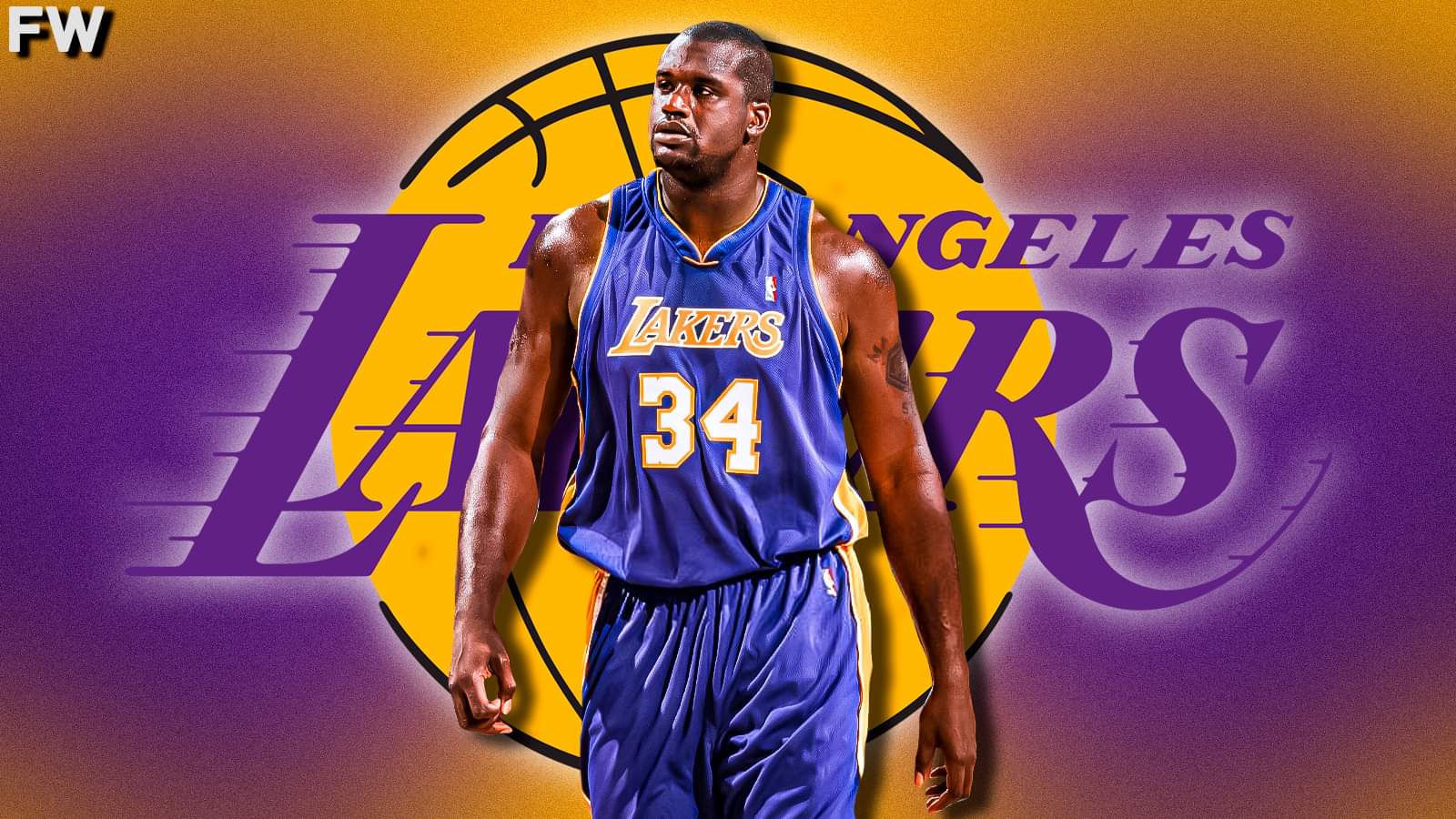
Already appearing on this list are the two seasons that came after Shaq’s near-perfect MVP season. O’Neal was a nightmare for all opponents in the early 2000s altogether but nothing compared to 2000 itself. Shaq would win the MVP award during the regular season with 29.7 PPG and the NBA’s scoring title along with 13.6 RPG and 3.0 BPG. When the Lakers reached the playoffs, not one opponent stood a chance.
Shaq powered the Lakers to an NBA Finals matchup with the Indiana Pacers who had longed to be able to compete for an NBA title led by Reggie Miller. O’Neal would have three different 40-point games in the series as the Lakers would eliminate the Pacers in six games for O’Neal and Kobe Bryant’s first NBA championship. Shaq would record 43 points and 40 points in Games One and Two before his monster performance of 41 points sealed the win and Finals MVP in Game Six.
1. Michael Jordan (1993 NBA Finals) – 41.0 PPG
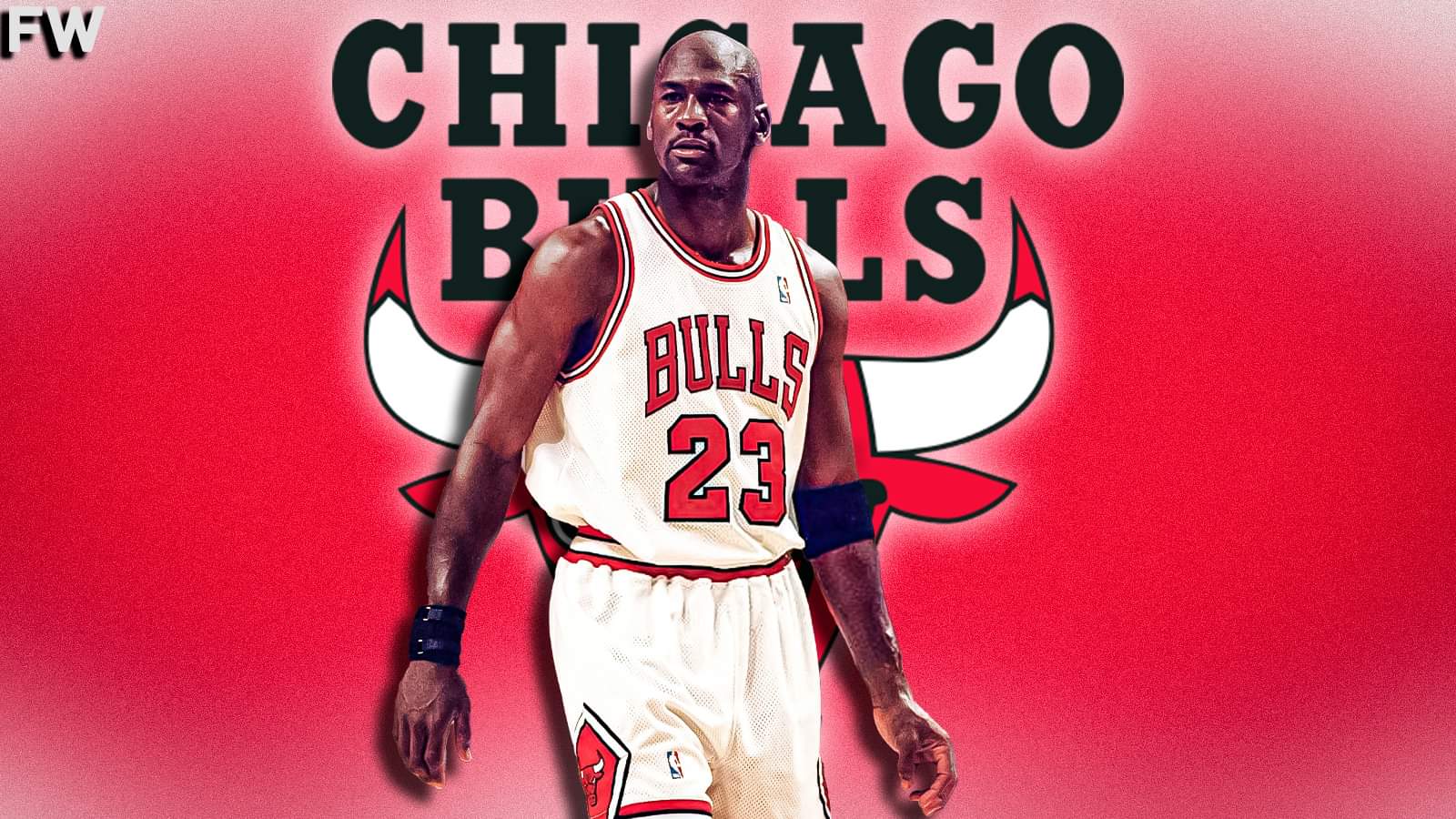
In 1991 and 1992, Michael Jordan led the Bulls to their first two NBA championships in team history. When the 1993 season began, Jordan and his team set out to do one thing and one thing only. Become the first team since Bill Russell’s Celtics to three-peat as NBA champions. During the season, Jordan won his seventh consecutive scoring title with 32.6 PPG and personally, was overcoming some horrifying personal hardships in order to make the team goal possible.
During the 1993 season, Charles Barkley was a new addition to the Phoenix Suns as they had a tremendous season with Barkley being named the MVP. The Bulls and Suns would meet in the NBA Finals and Michael Jordan would have the best Finals series of any player in NBA history. In Games Two thru Five, Jordan had performances of 42, 44, 55, and 41 points to build a 3-1 series lead for Chicago. In Game Six, Jordan sealed the three-peat and his third Finals MVP award with a 33-point performance.
We sincerely appreciate and respect you as a reader of our site. It would help us a lot if you follow us on Google News because of the latest update.
Thanks for following us. We really appreciate your support.

